FLORIDA STATE UNIVERSITY’S LEADING MULTI-MEDIA NEWS OUTLET
EDUCATION ... POLITICS ... SCIENCE & TECHNOLOGY ... HEALTH ... CULTURE ... ENTERTAINMENT ... OPINION
CULTURE┃NOVEMBER 20, 2025
FSU Celebrates 77th Annual Homecoming Week
Alyson Mizanin
EDUCATION┃NOVEMBER 13, 2025
FSU’s D.C. Study Away Program Begins in the Spring 2026 Semester
Alyson Mizanin
EDUCATION┃SEPTEMBER 23, 2025
FAMU Reopens After Two-Day In-Class Suspension
ZIONNE CUMMINGS
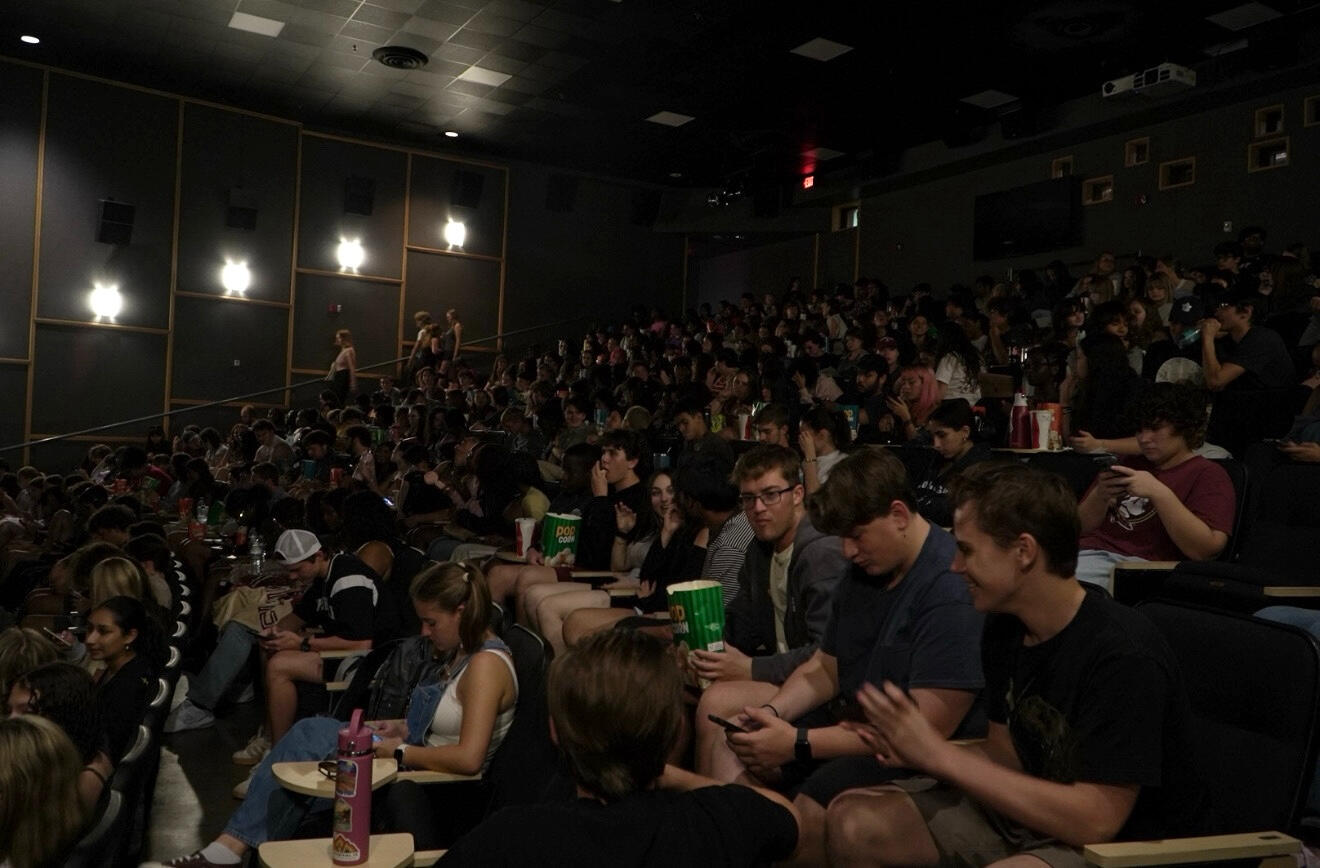
OPINION┃NOVEMBER 21, 2025
What Happened to Just Watching the Movie?
Movie etiquette disappears from our lives as people no longer know how to simply watch a film on the big screen. What was once a space for shared community has now become another excuse to doomscroll.
Lindley Minton
POLITICS┃NOVEMBER 18, 2025
The U.S. Government Restores SNAP Benefits After Longest Shutdown in History
ZIONNE CUMMINGS
EDUCATION┃NOVEMBER 16, 2025
FSU’s College of Music Hosts Dr. Andrea Ramsey For Week-Long Residency
Amy Arredondo
HEALTH┃NOVEMBER 15, 2025
Light the Night: Walking for a Cause
Maddie Medwid
ENTERTAINMENT┃NOVEMBER 14, 2025
ASLC to Pre-Screen “Wicked: For Good”
Alyson Mizanin
SCIENCE & TECHNOLOGY┃NOVEMBER 12, 2025
FSU’s iGEM Team Wins Gold at International Grand Jamboree Competition
Shireen Kaveh
EDUCATION ... POLITICS ... SCIENCE & TECHNOLOGY ... HEALTH ... CULTURE ... ENTERTAINMENT ... OPINION
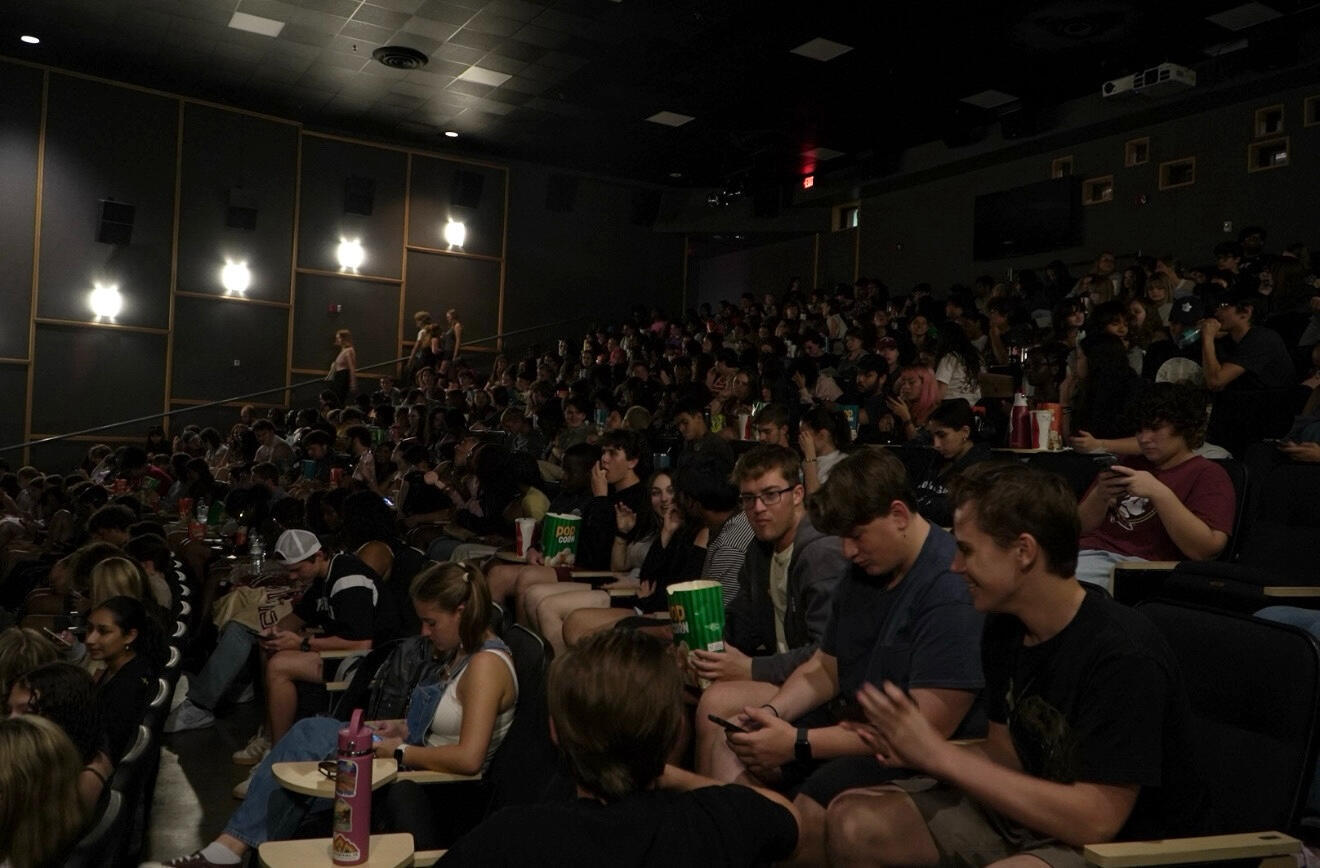
OPINION┃NOVEMBER 21, 2025
What Happened to Just Watching the Movie?
LINDLEY MINTON
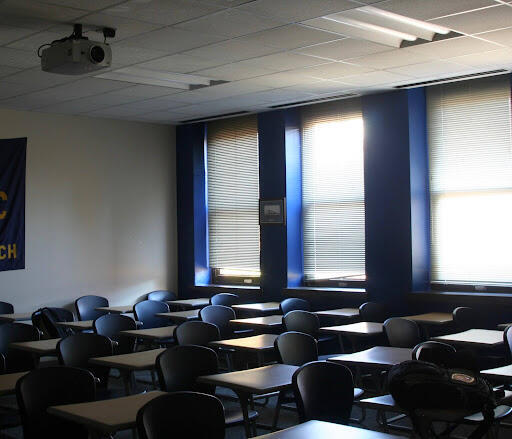
OPINION┃SEPTEMBER 24, 2025
Racialized Violence Spreads Across American Universities. What’s Next?
LILLIAN ALLEN
EDUCATION ... POLITICS ... SCIENCE & TECHNOLOGY ... HEALTH ... CULTURE ... ENTERTAINMENT ... OPINION
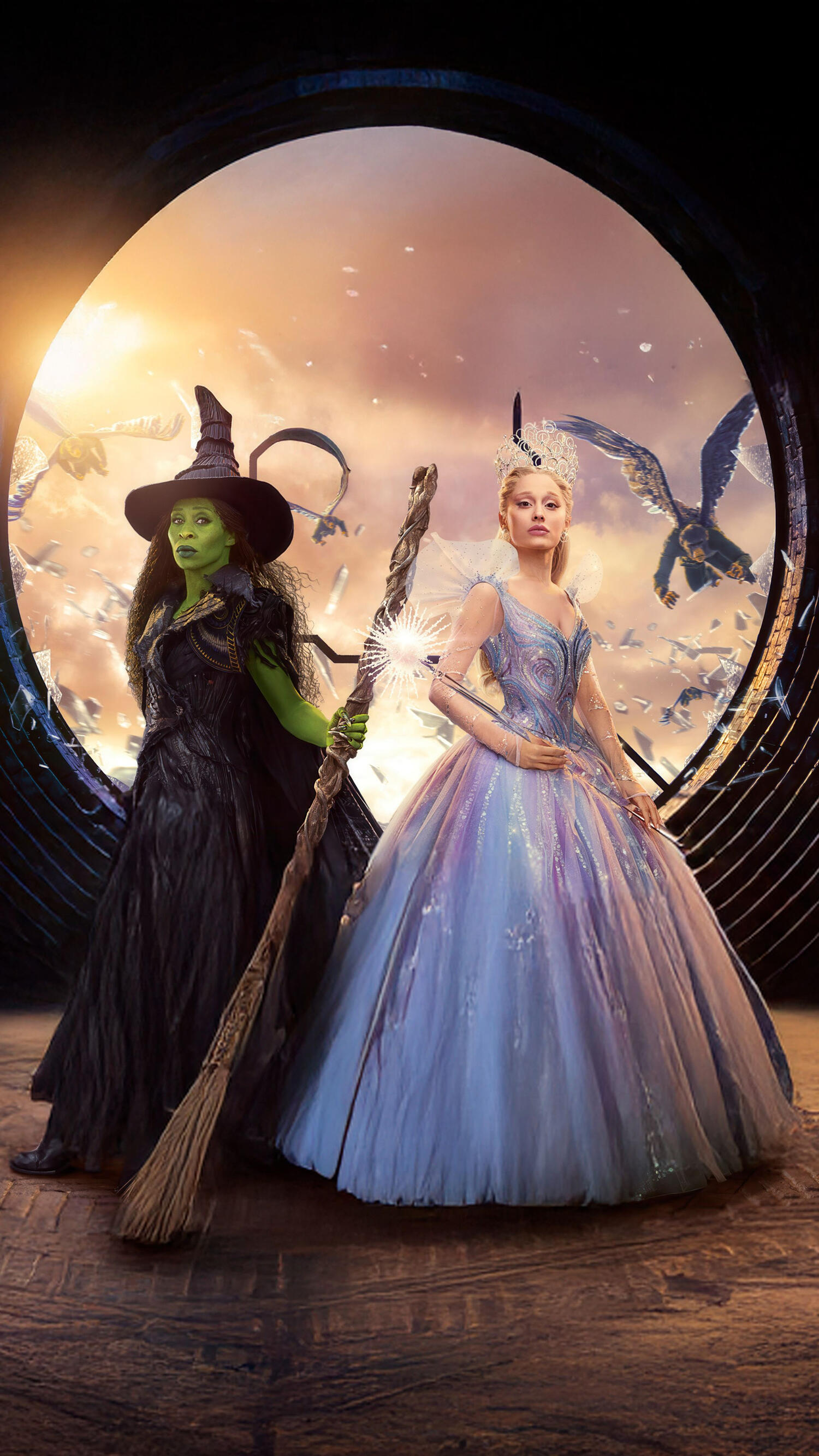
ENTERTAINMENT┃NOVEMBER 14, 2025
ASLC to Pre-Screen “Wicked: For Good”
Alyson Mizanin
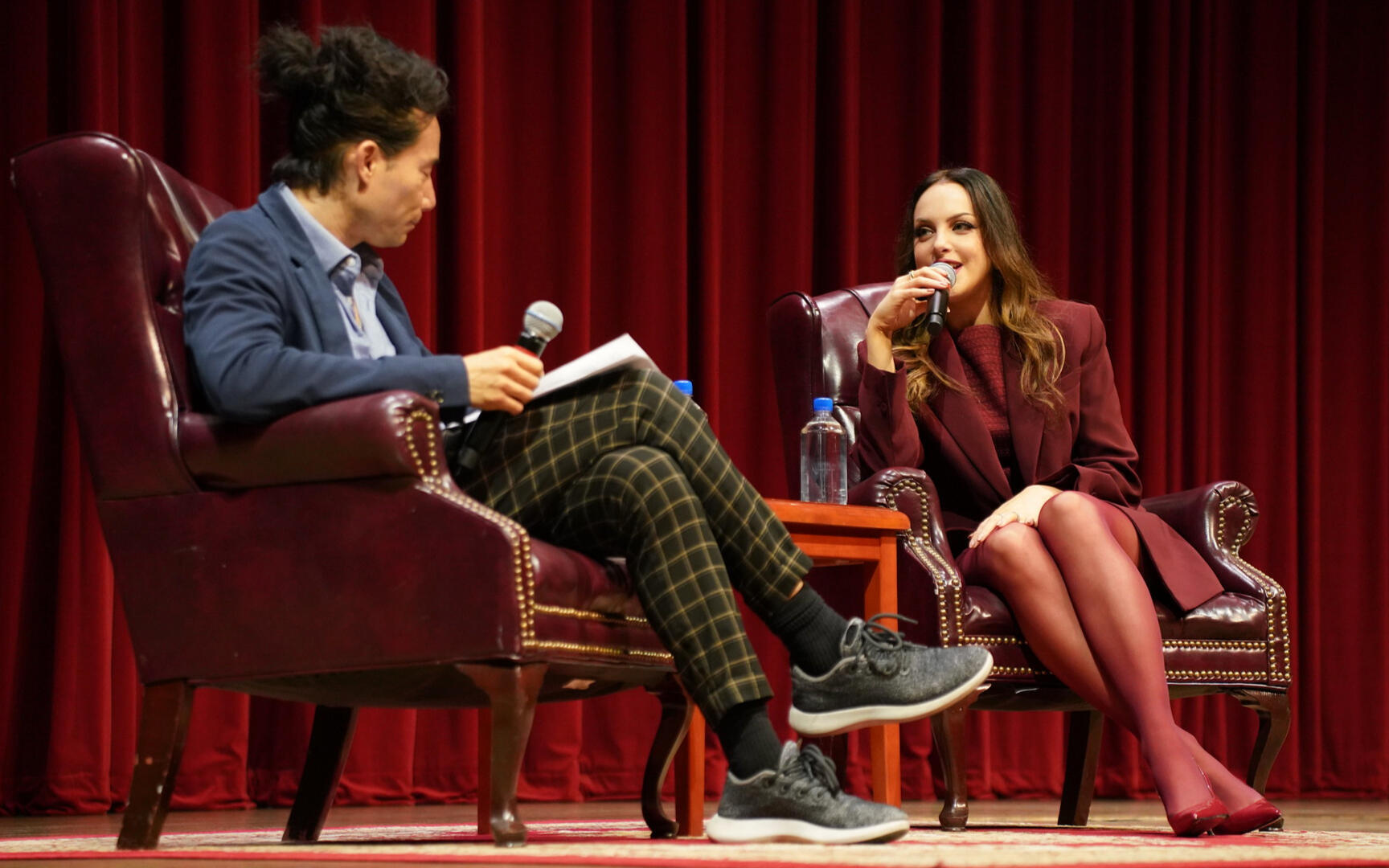
ENTERTAINMENT┃OCTOBER 8, 2025
‘An Evening with Elizabeth Gillies’ Offered Students a Look into Creative Industries
Daniela Saffon
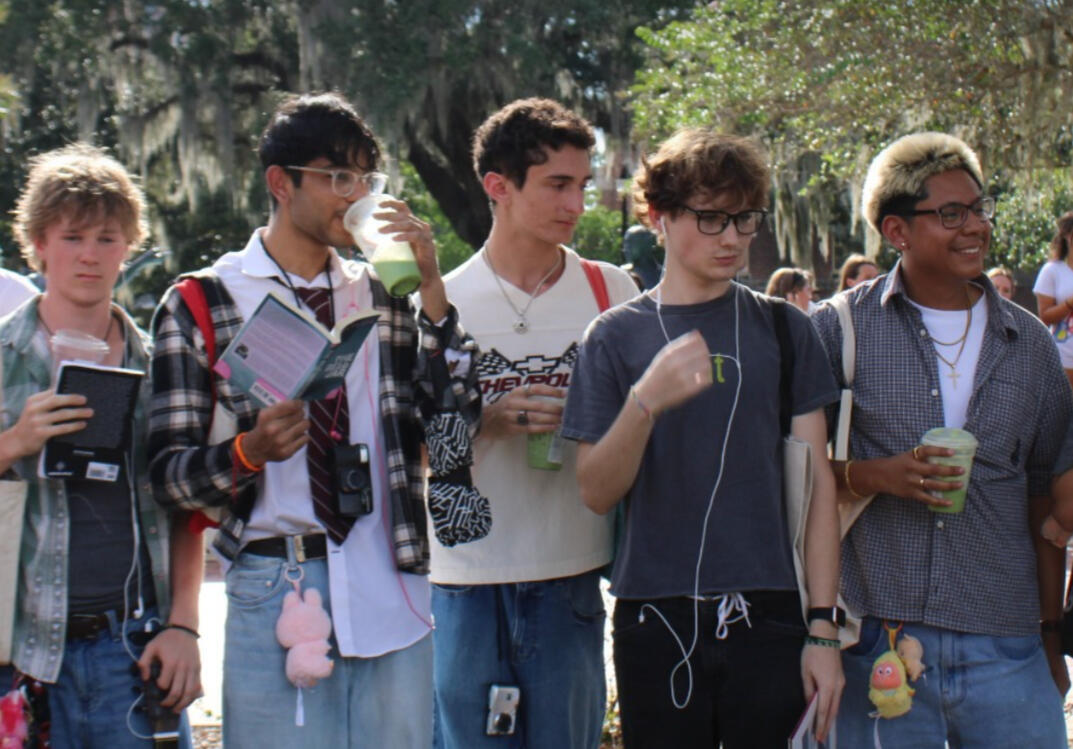
ENTERTAINMENT┃SEPTEMBER 11, 2025
Performative Male Contest attracts crowd of over 250 on Landis
ZIONNE CUMMINGS
EDUCATION ... POLITICS ... SCIENCE & TECHNOLOGY ... HEALTH ... CULTURE ... ENTERTAINMENT ... OPINION
CULTURE┃NOVEMBER 20, 2025
FSU Celebrates 77th Annual Homecoming Week
Alyson Mizanin
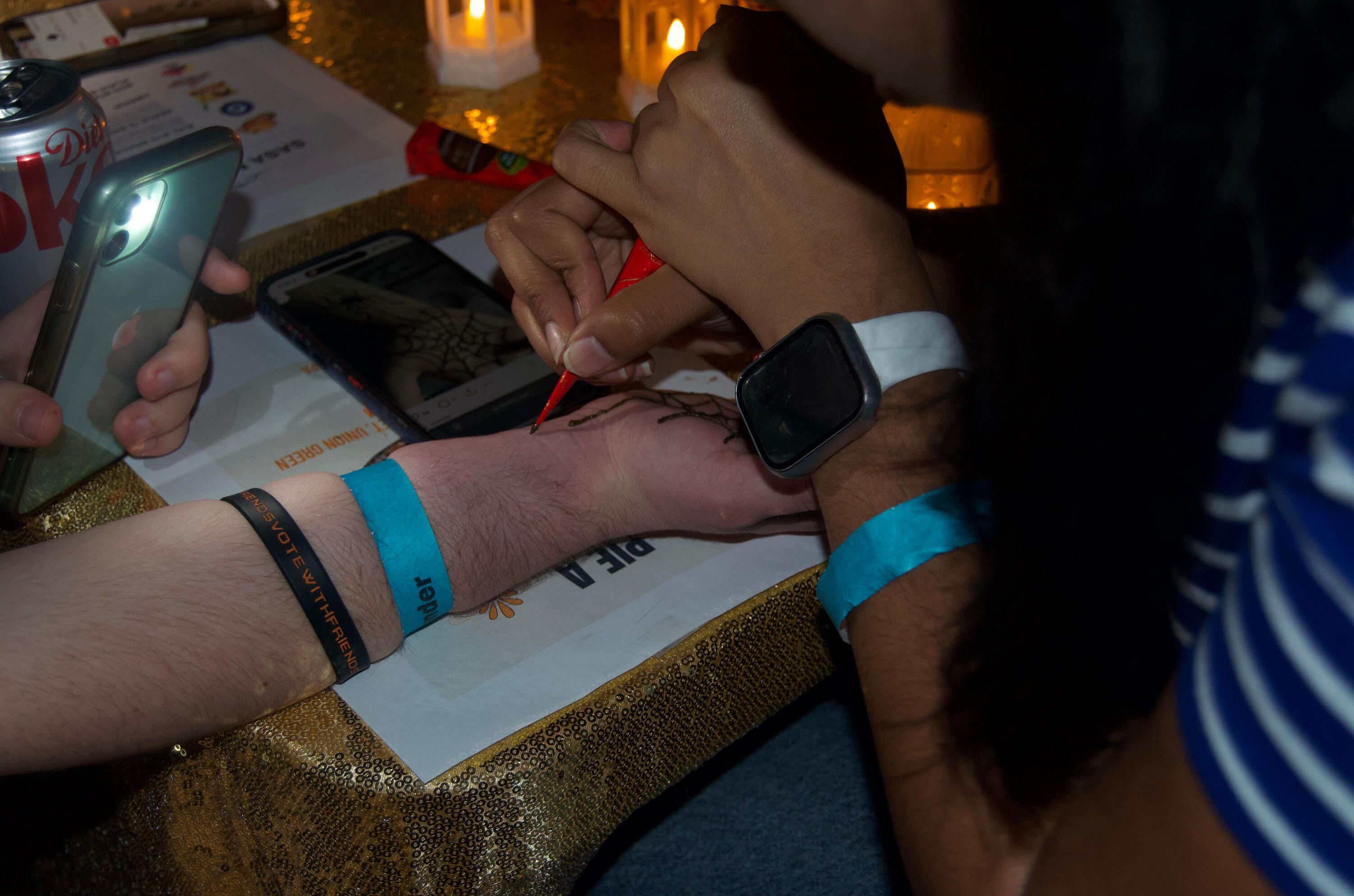
CULTURE┃OCTOBER 24, 2025
FSU’s Asian American Student Union Holds Sixth Annual 850 Night Market
Amy Arredondo
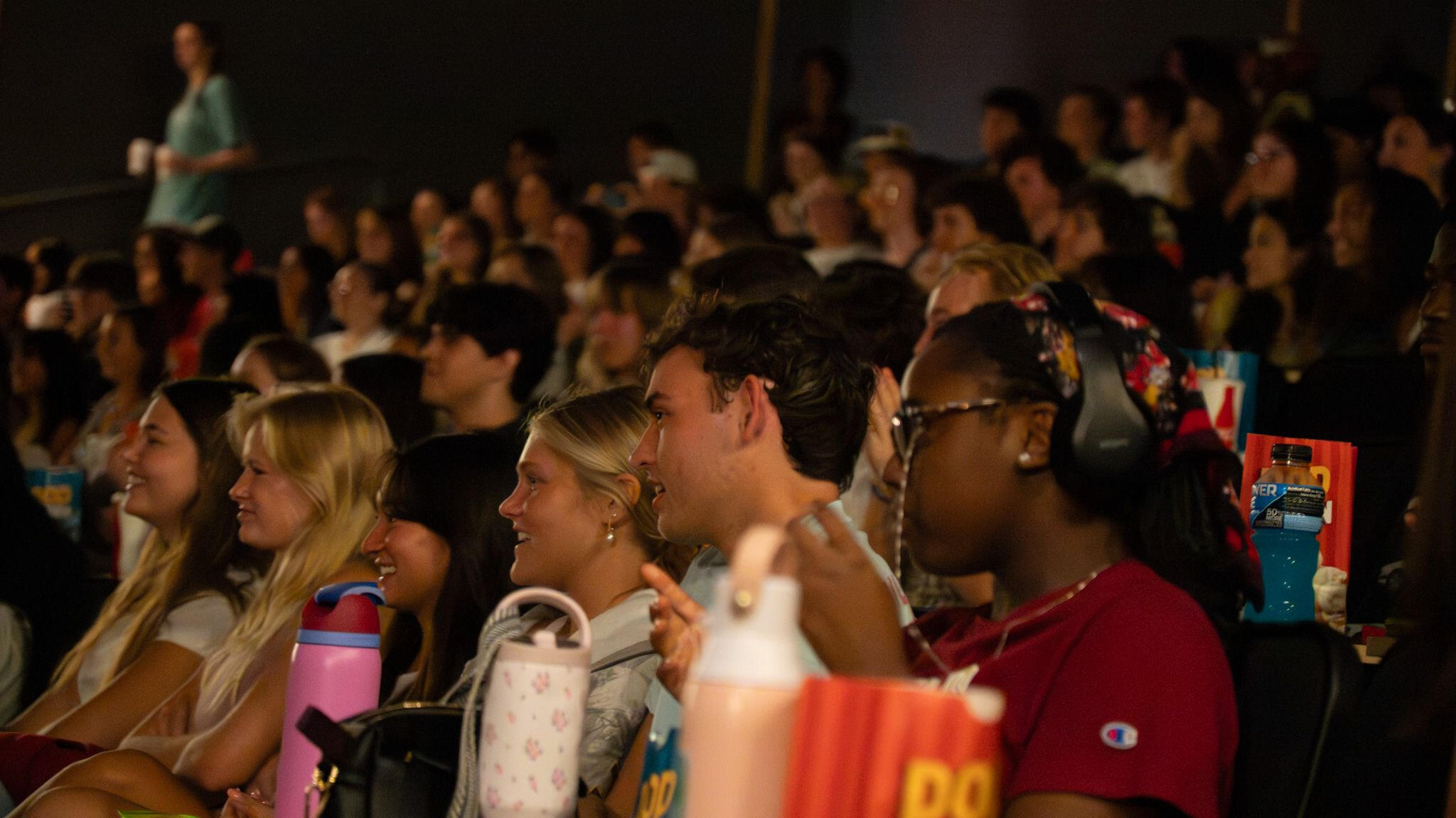
CULTURE┃OCTOBER 15, 2025
Askew Student Life Center Celebrates 25 Years at FSU
LILLIAN ALLEN
EDUCATION ... POLITICS ... SCIENCE & TECHNOLOGY ... HEALTH ... CULTURE ... ENTERTAINMENT ... OPINION
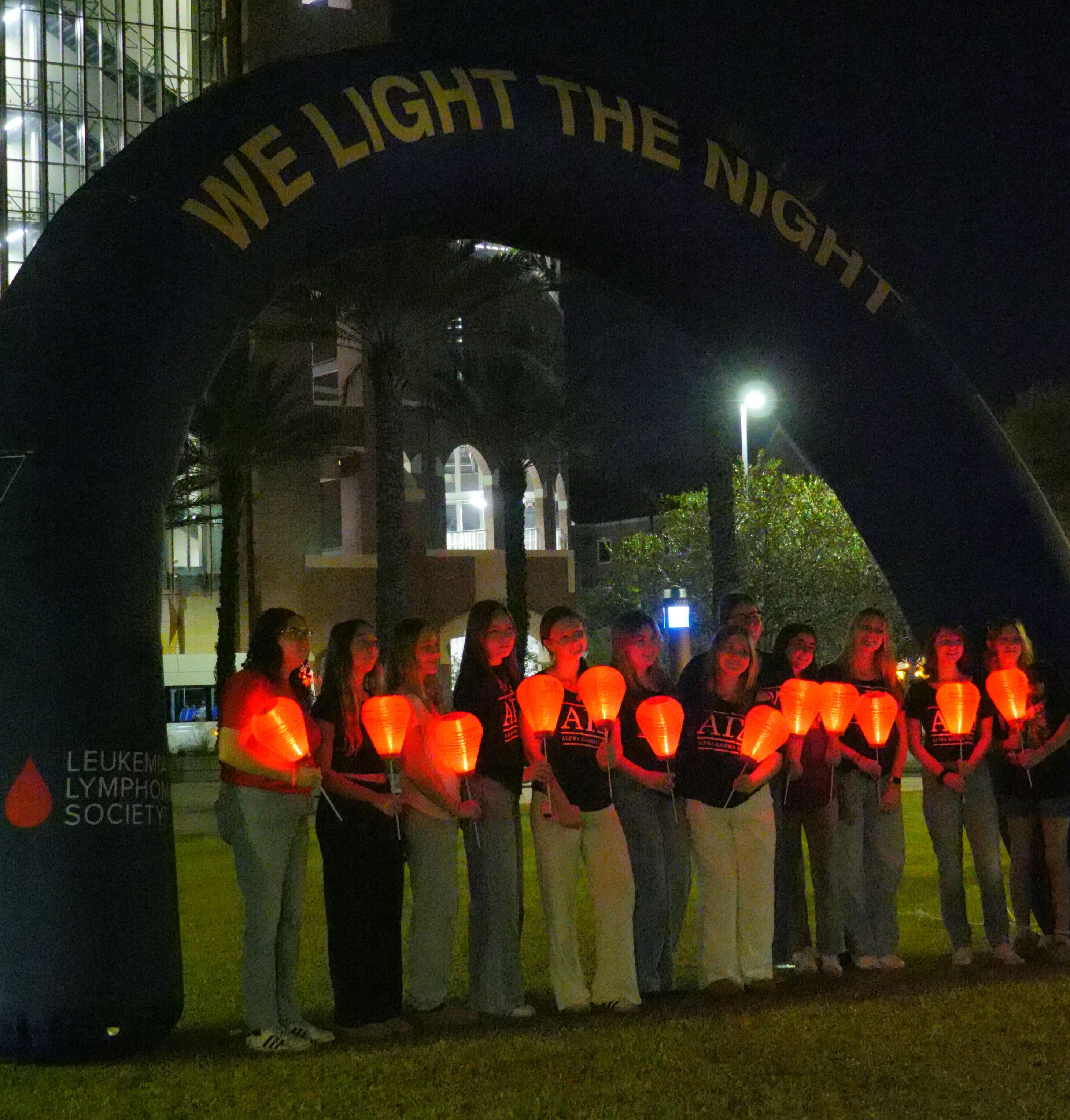
HEALTH┃NOVEMBER 15, 2025
Light the Night: Walking for a Cause
Maddie Medwid
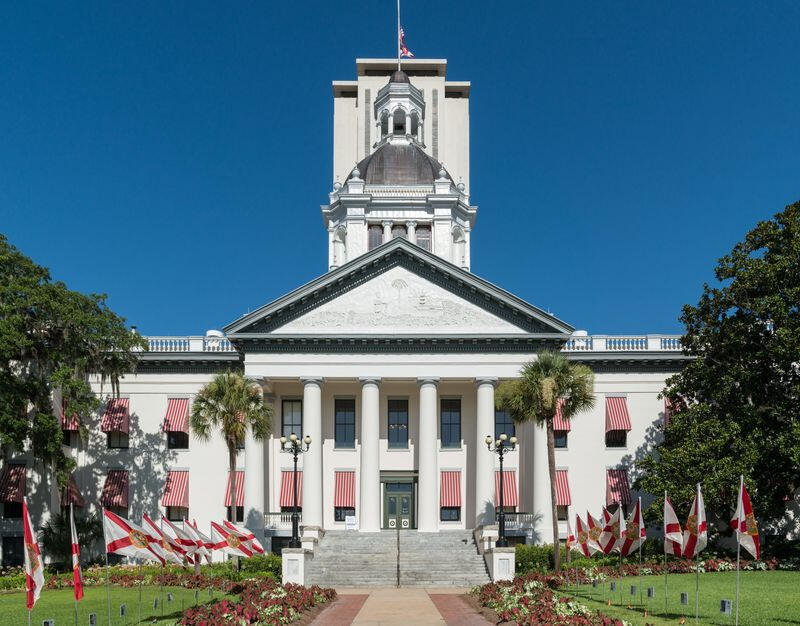
HEALTH┃NOVEMBER 6, 2025
Students Voice Concerns over Florida Vaccine Mandate Removal
Daniela Saffon
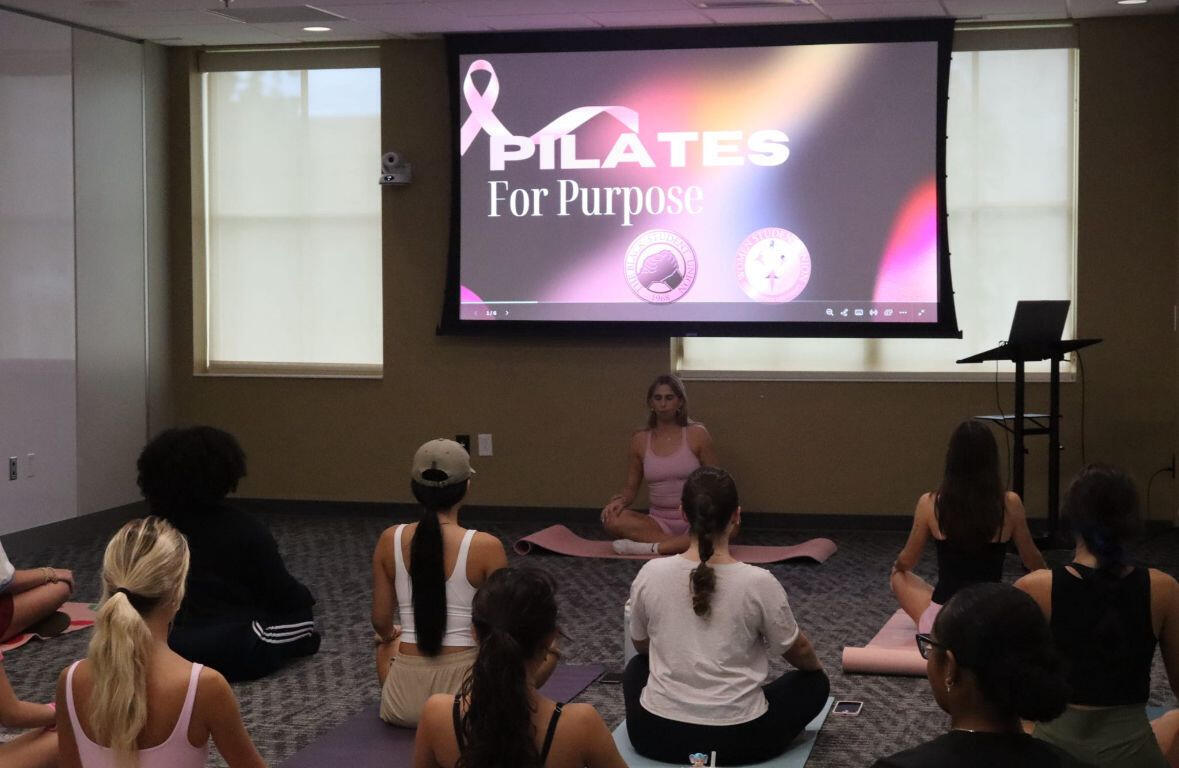
HEALTH┃OCTOBER 15, 2025
WSU & BSU Events Shine a Spotlight on Breast Cancer Awareness
Maddie Medwid
EDUCATION ... POLITICS ... SCIENCE & TECHNOLOGY ... HEALTH ... CULTURE ... ENTERTAINMENT ... OPINION
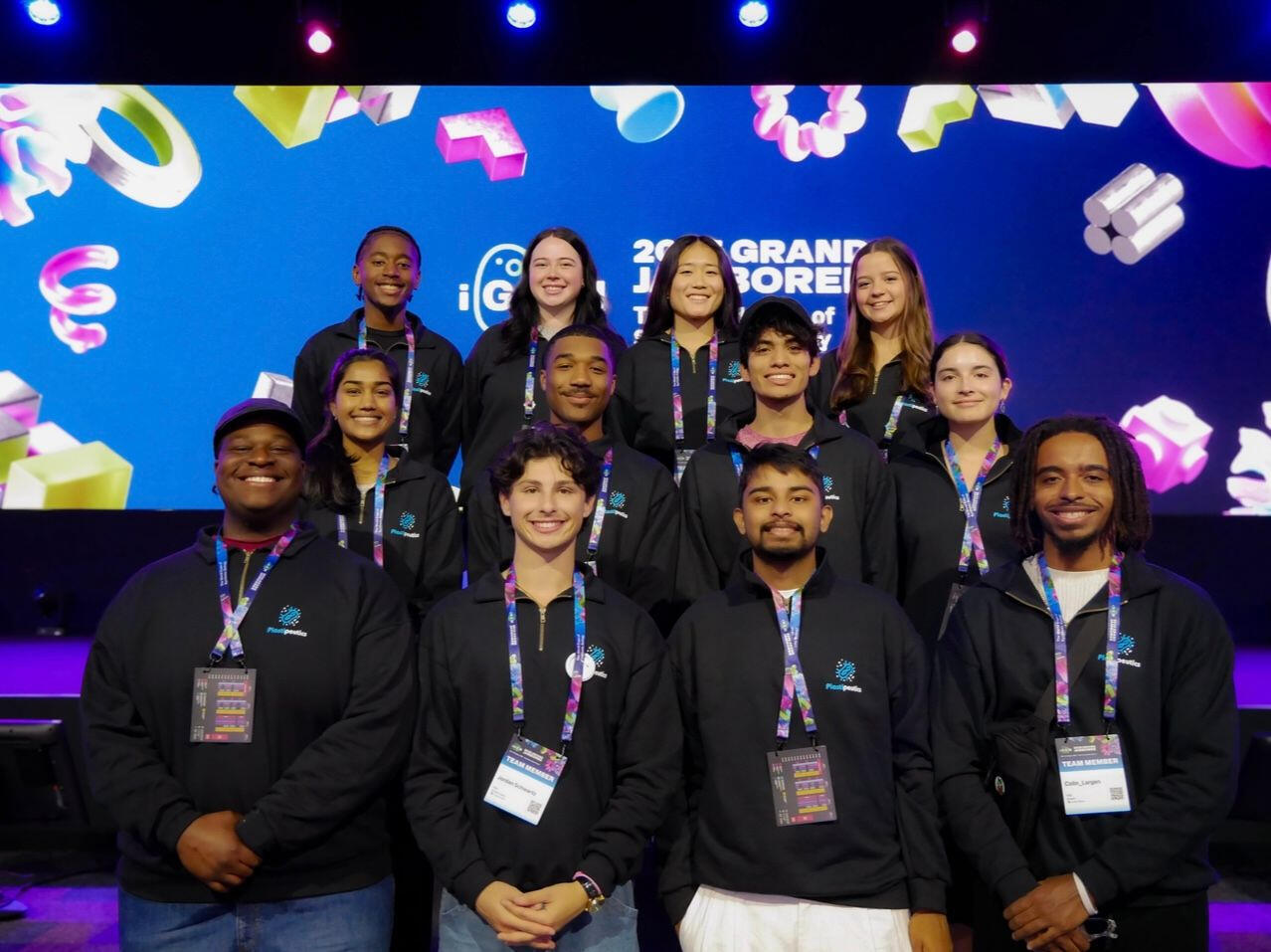
SCIENCE & TECHNOLOGY┃NOVEMBER 12, 2025
FSU’s iGEM Team Wins Gold at International Grand Jamboree Competition
Shireen Kaveh
EDUCATION ... POLITICS ... SCIENCE & TECHNOLOGY ... HEALTH ... CULTURE ... ENTERTAINMENT ... OPINION
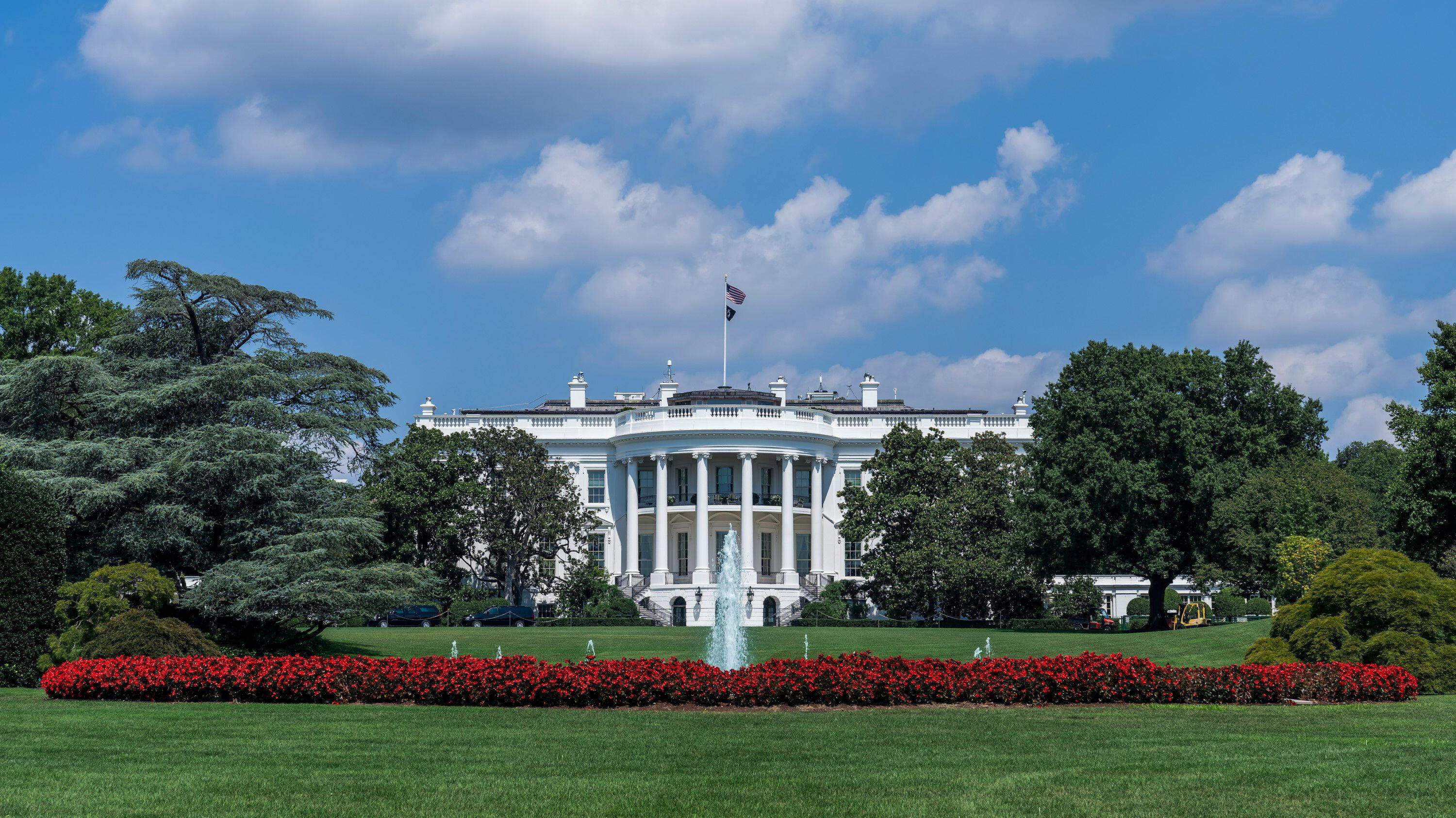
POLITICS┃NOVEMBER 18, 2025
The U.S. Government Restores SNAP Benefits After Longest Shutdown in History
ZIONNE CUMMINGS
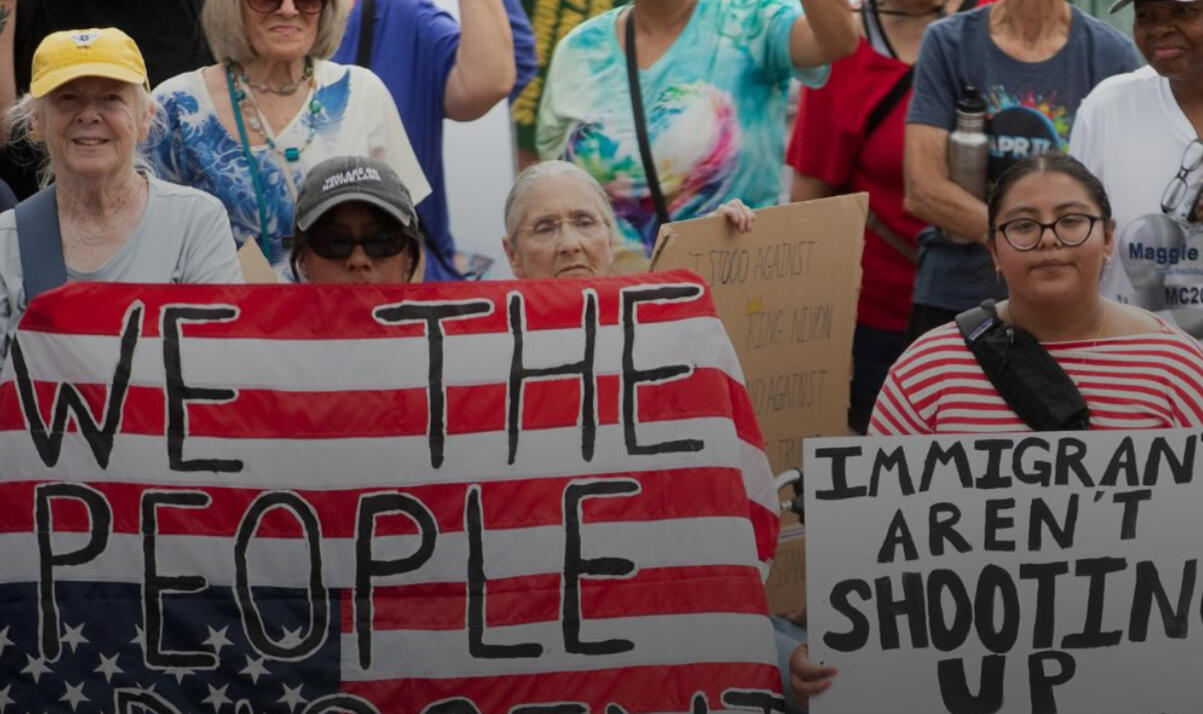
POLITICS┃SEPTEMBER 15, 2025
As part of the nationwide “No Kings Day” protests, thousands gathered in solidarity at the Florida Historic Capitol June 14.
ZIONNE CUMMINGS
EDUCATION ... POLITICS ... SCIENCE & TECHNOLOGY ... HEALTH ... CULTURE ... ENTERTAINMENT ... OPINION
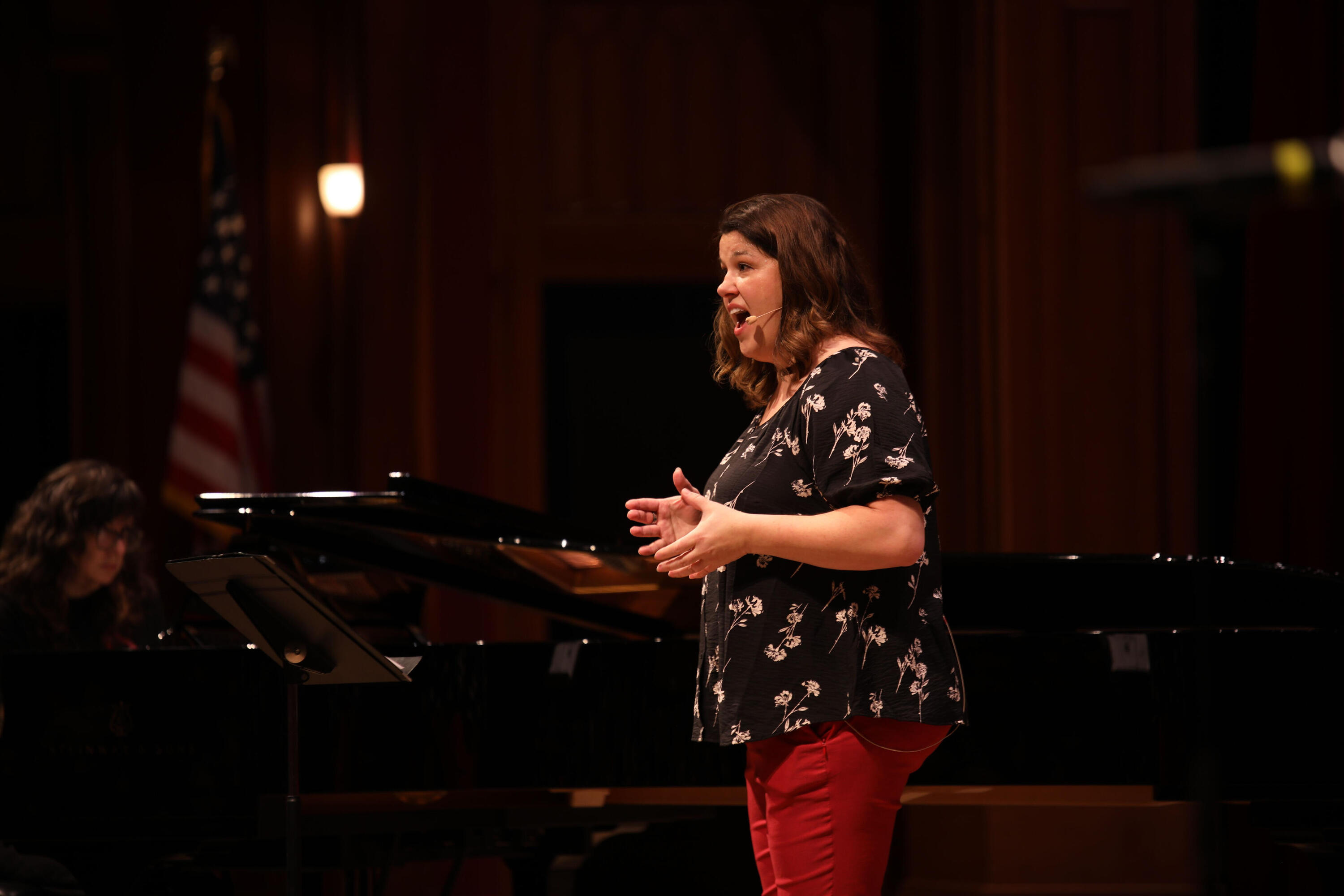
EDUCATION┃NOVEMBER 16, 2025
FSU’s College of Music Hosts Dr. Andrea Ramsey For Week-Long Residency
Amy Arredondo
EDUCATION┃NOVEMBER 13, 2025
FSU’s D.C. Study Away Program Begins in the Spring 2026 Semester
Alyson Mizanin
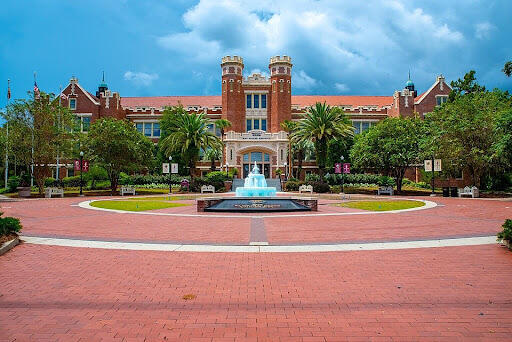
EDUCATION┃SEPTEMBER 26, 2025
Florida State University Hits Record High in U.S. News Rankings
MADDIE MEDWID
EDUCATION┃SEPTEMBER 23, 2025
FAMU Reopens After Two-Day In-Class Suspension
ZIONNE CUMMINGS
EDUCATION ... POLITICS ... SCIENCE & TECHNOLOGY ... HEALTH ... CULTURE ... ENTERTAINMENT ... OPINION
OPINION┃SEPTEMBER 24, 2025
Racialized Violence Spreads Across American Universities. What’s Next?
BY LILLIAN ALLEN
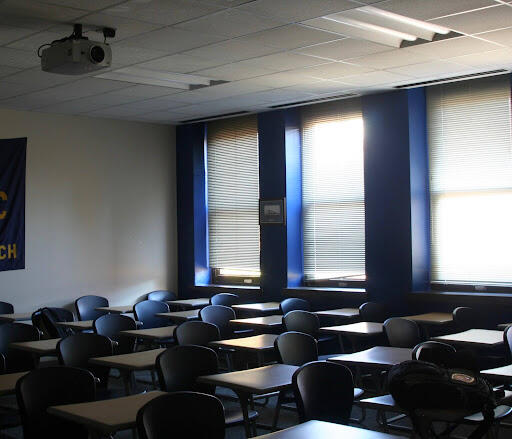
Photo by Hector Alejandro
Sept. 10: Charlie Kirk was shot and killed at Utah Valley University.Sept. 11: Alabama State University, Hampton University, Virginia State University, Southern University and A&M College, Bethune-Cookman University, Clark Atlanta University — all historically Black colleges and universities, or HBCUs — went into lockdowns after receiving threats. Although Spelman and Florida A&M University (FAMU) did not receive explicit threats, both universities canceled in-person classes and other campus events. At the University of Central Florida (UCF), an anonymous email threatening the lives of Black students was sent to administration, stating that they were planning “to shoot every [n-word] seen at your Orlando campus.” The threat was deemed not credible. Classes proceeded as usual.Sept. 14: Professors at Florida Atlantic University and the University of Miami were fired after comments made on personal pages regarding Kirk’s death. One post said, in part, “what was done to Charlie Kirk was done to countless Palestinian babies, children, girls, boys, women, and men … Charlie Kirk came out to say: I love this, I want more of this … As Malcolm [X] said, the chickens have come home to roost.”Sept. 15: Demartravion “Trey” Reed, a 21-year-old student, was found hanging from a tree at Delta State University in Mississippi. That same day, about 100 miles away in Vicksburg, Cory Zukatis, a homeless man, was also found hanging in a wooded area.…

Photo by KSL News
To ideological extremists, Kirk’s assassination provided the ammunition they needed to continue to threaten violence against marginalized groups. It also proved that they could get away with far worse.In the past week, seven HBCUs were forced into lockdowns. An anonymous email espousing disturbingly vitriolic threats against Black students was sent to UCF administration. A student was found hanged from a tree at an HBCU. There is a tangible culture of violence present in places of higher education. For some at Florida State University (FSU), it’s easy to separate Landis Green and Saturday tailgates from these overt, unchecked displays of unfathomable hatred. But this separation has not and will not protect us. After the harrowing display of gun violence FSU saw April 17, we’ve seen how political fanaticism manifests and influences isolated individuals, and our campus has experienced an irreversible violation because of it.Zionne Cummings, editor-in-chief of PULSE at FSU, spent Sept. 17 on FAMU’s campus. Professor and journalist Arionne Nettles welcomed Cummings into her office after agreeing to be interviewed. Framed prints of Octavia Butler and Marian Anderson decorate Nettles’ wall, and a photo of her family is nestled in between potted plants and Barbie dolls, two of which are modeled after Madam CJ Walker and Ida B. Wells. Sitting down, Cummings felt relieved and excited that she was able to conduct an interview at all.As of Sept. 18, professors and faculty from 14 higher-ed institutions have left or been removed from their positions because of alleged comments made about Kirk’s assassination. However, protecting democratic discourse means ensuring an environment where educators can respond rationally to distressing political events.“People are really afraid to say the wrong thing right now,” Nettles said. “I particularly, for one, have talked about these types of things my entire career … And as a Black journalist, it is our job to hold truth to power and to tell the truth […]. When I know things to be true and I’ve done the work behind it, I feel confident in saying it.”Nettles says she is grateful for the community FAMU possesses and the security they are able to offer their students. She also understands that our current climate affects the wellbeing of students and their quality of education — no matter what assurances an institution is able to offer.“During this time in your life, in college, I mean, you do have discourse, and you do learn about different people … It’s not good that you have to also worry about potential hate groups and things that can be so significant,” Nettles said.Though this danger often comes from places our administrations cannot control, there is a level of inaction that perpetuates its presence on campus.An FSU student, who will be referred to as Sarah to protect her identity, said that “there have been multiple times, even before the shooting, that I have felt unsafe on this campus because of racial remarks made to me or my fellow Black students. FSU has responded with nothing substantial.”Students should never feel unsafe in places of education. Collegiate institutions should unflinchingly protect and advocate for the livelihoods of all on campus: providing meaningful support and action for students who experience violence and threats to their wellbeing, allowing and supporting peaceful protests, and denouncing harmful ideological stances.It’s no simple thing to stand in a public space and call for change in any capacity, and it’s much easier to address inequities than it is to actually sit down and solve them. Even now, when our speech is under such intense scrutiny and censorship, the ability to speak out at all is often completely undermined. But the bravery of students like Sarah and professors like Nettles who speak truthfully about their experiences reminds us that although these battles will not be easily won, there will always be people fighting for meaningful change.
To ideological extremists, Kirk’s assassination provided the ammunition they needed to continue to threaten violence against marginalized groups. It also proved that they could get away with far worse.In the past week, seven HBCUs were forced into lockdowns. An anonymous email espousing disturbingly vitriolic threats against Black students was sent to UCF administration. A student was found hanged from a tree at an HBCU. There is a tangible culture of violence present in places of higher education. For some at Florida State University (FSU), it’s easy to separate Landis Green and Saturday tailgates from these overt, unchecked displays of unfathomable hatred. But this separation has not and will not protect us. After the harrowing display of gun violence FSU saw April 17, we’ve seen how political fanaticism manifests and influences isolated individuals, and our campus has experienced an irreversible violation because of it.Zionne Cummings, editor-in-chief of PULSE at FSU, spent Sept. 17 on FAMU’s campus. Professor and journalist Arionne Nettles welcomed Cummings into her office after agreeing to be interviewed. Framed prints of Octavia Butler and Marian Anderson decorate Nettles’ wall, and a photo of her family is nestled in between potted plants and Barbie dolls, two of which are modeled after Madam CJ Walker and Ida B. Wells. Sitting down, Cummings felt relieved and excited that she was able to conduct an interview at all.As of Sept. 18, professors and faculty from 14 higher-ed institutions have left or been removed from their positions because of alleged comments made about Kirk’s assassination. However, protecting democratic discourse means ensuring an environment where educators can respond rationally to distressing political events.“People are really afraid to say the wrong thing right now,” Nettles said. “I particularly, for one, have talked about these types of things my entire career … And as a Black journalist, it is our job to hold truth to power and to tell the truth […]. When I know things to be true and I’ve done the work behind it, I feel confident in saying it.”Nettles says she is grateful for the community FAMU possesses and the security they are able to offer their students. She also understands that our current climate affects the wellbeing of students and their quality of education — no matter what assurances an institution is able to offer.“During this time in your life, in college, I mean, you do have discourse, and you do learn about different people … It’s not good that you have to also worry about potential hate groups and things that can be so significant,” Nettles said.Though this danger often comes from places our administrations cannot control, there is a level of inaction that perpetuates its presence on campus.An FSU student, who will be referred to as Sarah to protect her identity, said that “there have been multiple times, even before the shooting, that I have felt unsafe on this campus because of racial remarks made to me or my fellow Black students. FSU has responded with nothing substantial.”Students should never feel unsafe in places of education. Collegiate institutions should unflinchingly protect and advocate for the livelihoods of all on campus: providing meaningful support and action for students who experience violence and threats to their wellbeing, allowing and supporting peaceful protests, and denouncing harmful ideological stances.It’s no simple thing to stand in a public space and call for change in any capacity, and it’s much easier to address inequities than it is to actually sit down and solve them. Even now, when our speech is under such intense scrutiny and censorship, the ability to speak out at all is often completely undermined. But the bravery of students like Sarah and professors like Nettles who speak truthfully about their experiences reminds us that although these battles will not be easily won, there will always be people fighting for meaningful change.
EDUCATION ... POLITICS ... SCIENCE & TECHNOLOGY ... HEALTH ... CULTURE ... ENTERTAINMENT ... OPINION
EDUCATION┃SEPTEMBER 26, 2025
Florida State University Hits Record High in U.S. News Rankings
BY MADDIE MEDWID
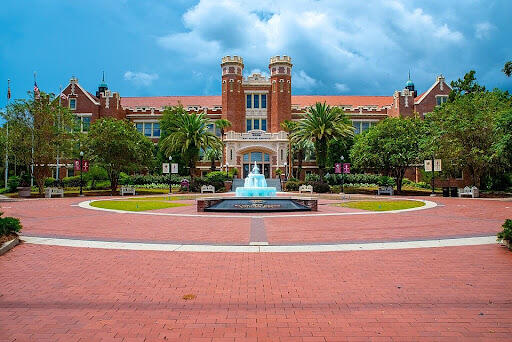
Author: Ernie Stephens Source: Westcott Photo License: Creative Commons
Florida State University (FSU) has achieved its highest ever overall placement in the U.S. News & World Report Best Colleges rankings, reaching No. 51 among all national universities in the 2026 ranking. FSU moved up three spots from the previous year.FSU also rose to No. 21 among public universities, securing a spot in the top 25 for the sixth consecutive year. In light of this accomplishment, FSU highlighted several areas of improvement, including a four-year graduation rate of 78%, up from 76% in 2025. The university also reported a record 97% first-year retention rate.FSU has made steady upward progress in the nationwide rankings over the past decade. In 2018, the university was ranked No. 70 nationally between both private and public universities and No. 26 among public universities. Since then, the school has consistently placed among the nation’s top 25 public institutions while narrowing the gap in overall national rankings.“Our rise in the rankings is a testament to the dedication of our students, faculty and staff,” President Richard McCullough said to FSU News. “Achieving the highest overall ranking in our university’s history reflects our commitment to academic excellence, student success and impactful research.”McCullough credited FSU’s rise to “meaningful investments in areas that directly impact students.” Over the past several years, the university has expanded tutoring and advising services, added living-learning communities for first-year students, and prioritized academic support for first-generation and low-income populations.Following these improvements, FSU climbed to No. 38 under “Top Performers on Social Mobility” among public universities in the U.S. News & World Report ranking. This metric evaluates the graduation rates of students who are financially disadvantaged and includes what efforts the school takes to ensure that students successfully complete their degree programs.FSU continues to work toward improving the student experience. Plans include further expansion of student services and investments in health and biomedical programs, including developing a new academic health center in Panama City Beach, a partnership with Tallahassee Memorial HealthCare.The 2026 ranking represents a significant milestone in the university’s ongoing growth. University leaders predict continued growth, academic excellence, and a stronger commitment to supporting students’ success – both on campus and beyond.
EDUCATION ... POLITICS ... SCIENCE & TECHNOLOGY ... HEALTH ... CULTURE ... ENTERTAINMENT ... OPINION
ENTERTAINMENT┃OCTOBER 8, 2025
‘An Evening with Elizabeth Gillies’ Offered Students a Look into Creative Industries
BY DANIELA SAFFON
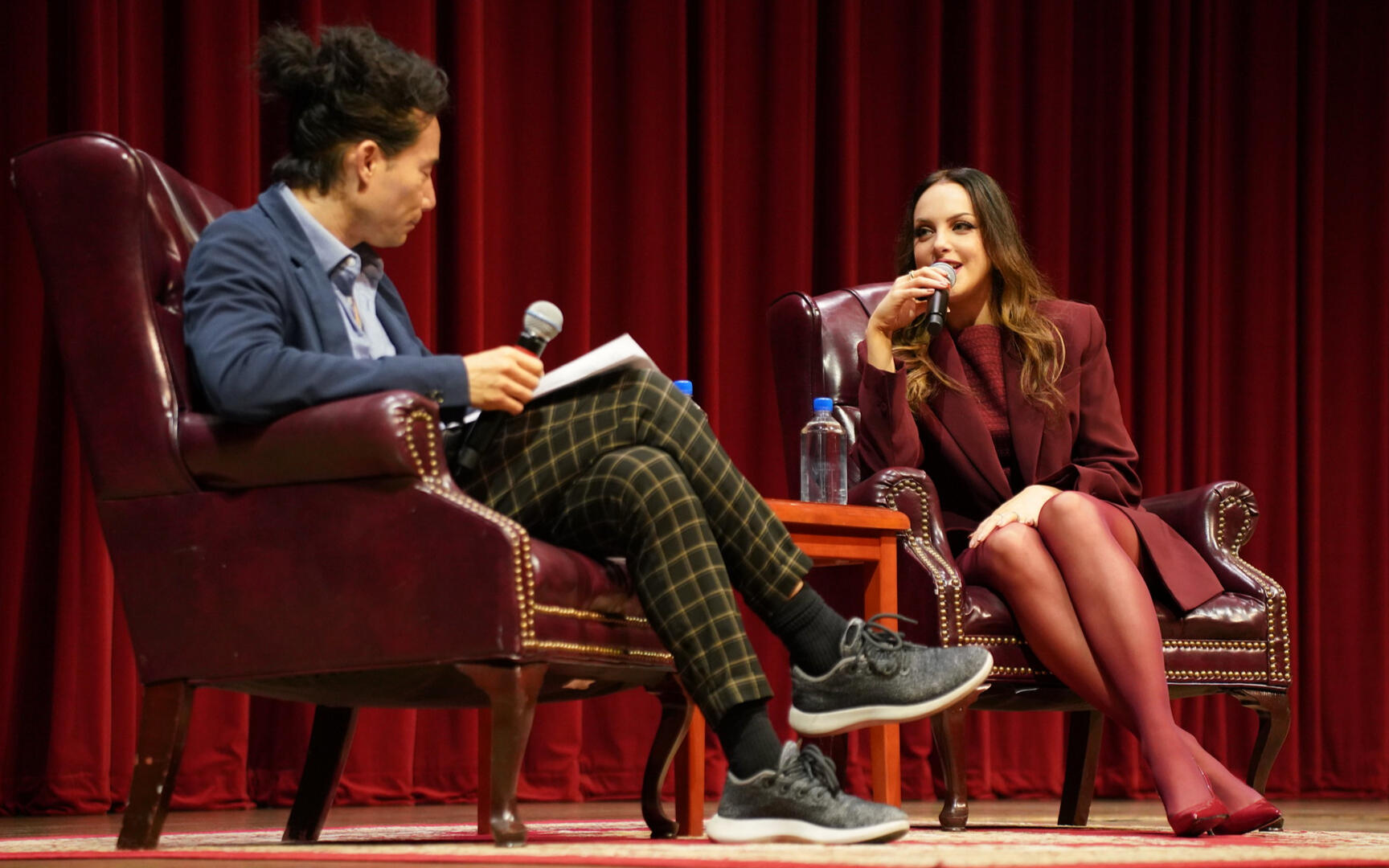
Credit: Club Downunder
Anticipation filled the Ruby Diamond Concert Hall Sept. 30 as students waited to welcome actress and musician Elizabeth Gillies as this semester’s first guest speaker of the Golden Torch Lecture series. The sold-out event, “An Evening with Elizabeth Gillies,” offered a look into Gillies’ wide-spanning career through a moderated discussion.Gillies first broke into the entertainment industry on the Broadway show 13: The Musical. The production was Gillies’ first experience with an unpredictable industry. After just over 100 performances, the show closed its doors permanently.“It ended very abruptly because of unforeseen circumstances, which we see again and again. We just saw a big strike and the pandemic,” Gillies said during the lecture. “It just teaches you that nothing is permanent, and you have to just live in the moment and be thankful for work when you can get it and never expect that there’s going to be more work.”However, 14 months later, Gillies was launched to stardom after being cast as Jade West on the Nickelodeon show Victorious. The show became incredibly popular, winning multiple Kids’ Choice Awards, garnering four Emmy nominations and developing a strong fan base. Many students, such as freshman Francesca Muscarella, grew up watching Gillies on their screens. Muscarella described Gillies as her childhood idol.“I loved watching her growing up. I wanted to be a child actress myself, so I really looked up to her,” Muscarella said.While on Victorious, Gillies performed several songs, including her first platinum-certified track “Take a Hint,” and experimented with songwriting with “You Don’t Know Me.” On set, she carefully watched the directors and sat in editing rooms, learning as much as she could about the industry. During her talk, she emphasised the importance of being a well-rounded artist.“Even if you’re just acting, learn about editing, learn about lighting, shadow directors, write things for yourself,” Gillies said. “The more control you have, the more knowledge you have, the more of a power player you will be and the more respected you will be.”After Victorious ended, Gillies went on to play Fallon Carrington in the CW reboot of Dynasty, where she finally got the opportunity to sit in the director’s chair. She made her much-anticipated return to the stage earlier this year for an Off-Broadway revival of Little Shop of Horrors with Milo Manheim.Throughout the evening, Gillies discussed the film industry's destabilization due to generative artificial intelligence (AI), specifically mentioning the AI bot Tilly Norwood.“I didn’t know about the [implications on] acting, so I think it’s pretty important to have people who advocate in all aspects,” freshman Sofia Arango said. “If I didn’t know about this, imagine how many kinds of fields are being threatened.”Muscarella echoed this sentiment, saying, “This event definitely brought to the attention of a lot of people that AI isn't just affecting the traditional fields like business and medical.”Students also praised the school for hosting events that highlight the fine arts on campus.“We have a really well-recognized, on the national-level, theater school, and supporting our students through performers that come or, even potentially in the future, other professions, would be a great support to our up-and-coming students,” said Costume Technology graduate student Cypress Bowen.As they made their way out of the theater, many students excitedly expressed their gratitude for this opportunity. With FSU being a school that has a strong focus on theater and fine arts, students might find events like these vital in their journeys to become more well-rounded and informed people and future employees.
EDUCATION ... POLITICS ... SCIENCE & TECHNOLOGY ... HEALTH ... CULTURE ... ENTERTAINMENT ... OPINION
CULTURE┃OCTOBER 15, 2025
Askew Student Life Center Celebrates 25 Years at FSU
BY LILLIAN ALLEN
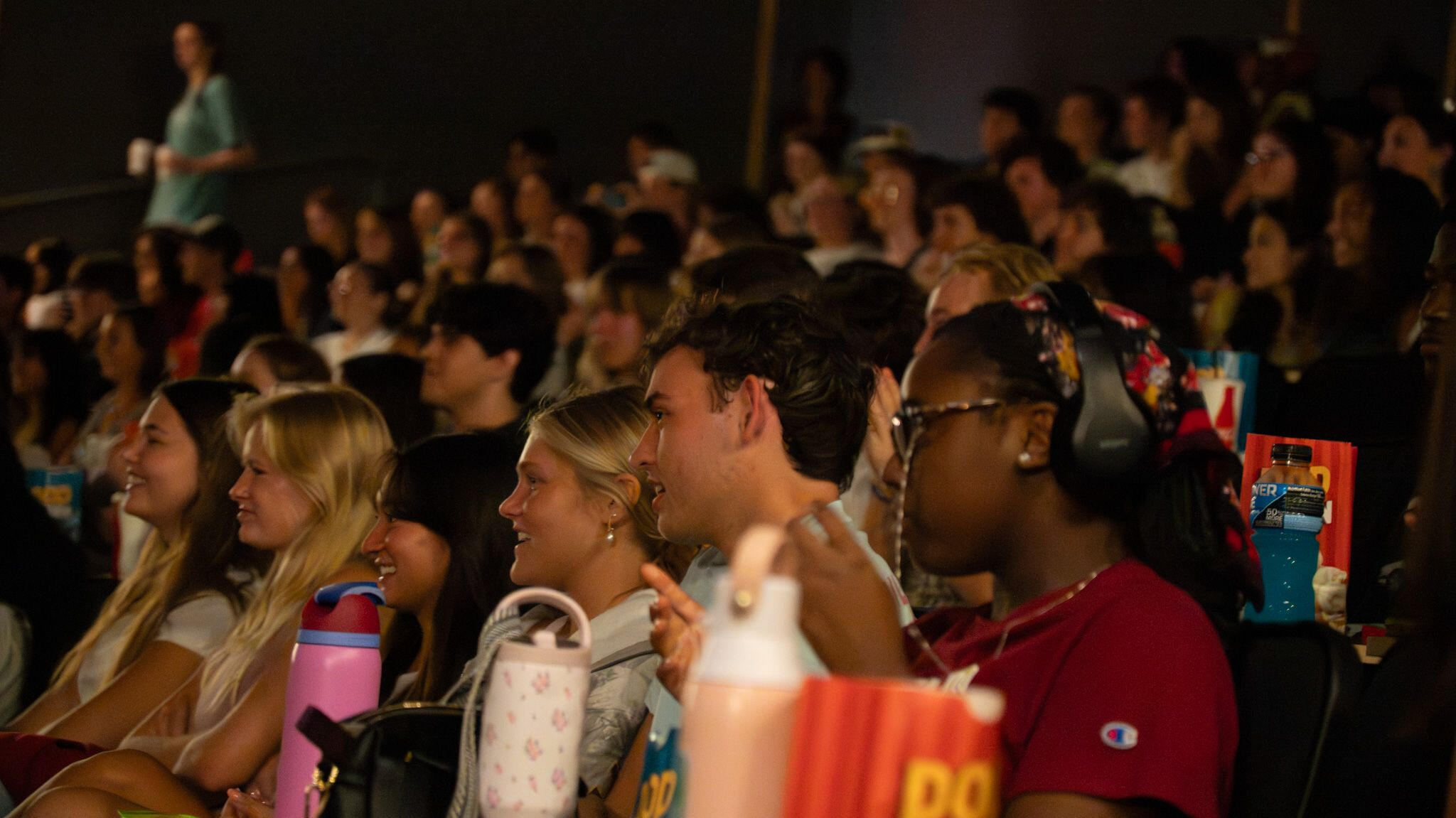
Credit: Tony Molina
On Oct. 13, the Askew Student Life Center (ASLC) was decorated with piñatas, streamers, and confetti to celebrate 25 years of operation at Florida State University (FSU). Students and staff were invited to participate in scavenger hunts and other interactive activities.Since opening its doors in 2000, the ASLC has become a cultural center and hub for student engagement. In addition to a gaming center, paint-your-pot studio, and movie theater, the ASLC hosts weekly open committee meetings where students can participate in various programming events. For many, it’s an inclusive space to connect with others, unwind, and immerse themselves in campus life.Ryan Walker, a transfer student majoring in business management, said, “This is kind of my first year here, it’s a new experience. I’m trying to come to events more often and make friends through the ASLC.”In the past, the ASLC has partnered with a wide variety of campus organizations to host events, including the Pride Student Union, Center for Global Engagement, and FSU’s Spoonbill Society. Christine Hansen, the ASLC's program director, commented on the center’s commitment to improving campus community.“This is a place truly for everyone. At least one point in the year, every year, we have an event for everyone on campus,” Hansen said.
As the ASLC enters its 26 year at FSU, its mission remains to provide students with a place to connect with each other and campus. Through its expansive involvement opportunities, campus collaboration, and daily events, the ASLC stands as a lasting and impactful testament to the power of community and student innovation.
EDUCATION ... POLITICS ... SCIENCE & TECHNOLOGY ... HEALTH ... CULTURE ... ENTERTAINMENT ... OPINION
HEALTH┃OCTOBER 15, 2025
WSU & BSU Events Shine a Spotlight on Breast Cancer Awareness
BY MADDIE MEDWID
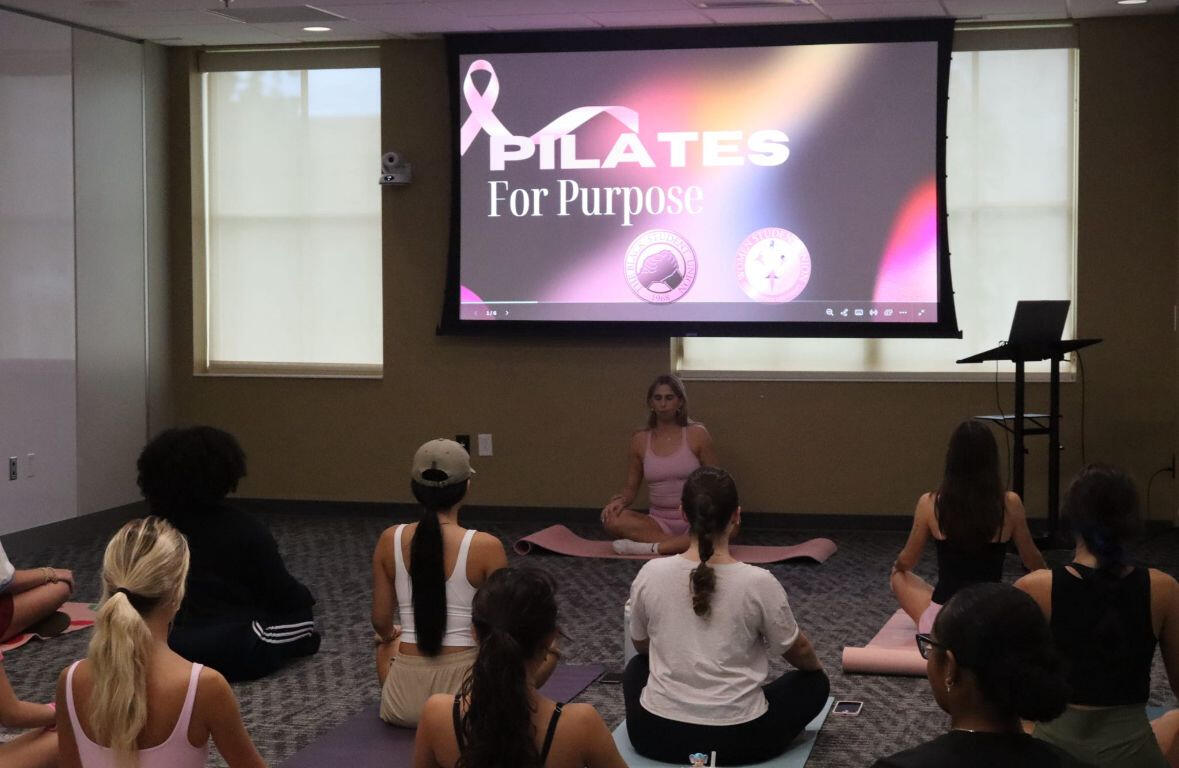
Credit: Hanna Remtulla
From Oct. 6 to Oct. 11, Florida State University’s (FSU) Women’s Student Union (WSU) and Black Student Union (BSU) aimed to promote awareness as they came together to host a week of events dedicated to Breast Cancer Awareness Month.For the WSU’s programming director Jade Jacotin, the week’s events held personal significance.“As someone who has been personally impacted by breast cancer, I can confidently say that I decided to push the events because 1 in 8 women are diagnosed with breast cancer in the United States. Black women have a 40% mortality of the women who are diagnosed, which is the highest of any other ethnic race,” Jacotin said.Building on their commitment to advocacy and education, the organizers also sought to create tangible ways for students to contribute to the cause. Throughout the entire week, a donation drive drop-off allowed students to donate comfort, hygiene, or wellness items at the BSU House or WSU Office. Items included gentle soaps or body wash, warm socks or slippers, and reusable water bottles. The drive raised awareness by informing participants about common needs or ways to support women during treatment and recovery, a goal that organizers say depends on community involvement.“I think it’s really important we learn as a group and recognize these issues as a group, especially because there needs to be large changes for breast cancer awareness,” said Emma Brown, assistant director of WSU. “Women’s health needs to be seen as a priority, so it’s one of those things that is only going to happen when there is a community component to it.”Tuesday’s event featured “Survivor Spotlight,” highlighting the voices of breast cancer survivors, including LaQuisha Persak. Persak is a double FSU alumna, formerly serving as a senior admissions officer and as the assistant director of the Office of Admissions. She received a bachelor’s degree in Elementary Education and a master’s degree in Applied American Politics and Policy. Now, Persak serves as a BSU Liaison on behalf of the FSU National Black Alumni.Diagnosed with breast cancer in Jan. 2021, Persak said the experience taught her that the disease can affect anyone, regardless of age. Her message to students? “You are your best advocate.”She emphasized the importance of seeking both health and community resources on campus, encouraging students to take proactive steps for their well-beings. Taking this initiative will significantly increase the chances of successful treatment. Even if nothing is wrong, Persak concludes that it will ensure peace of mind and prevent unnecessary stress.The next event was held Wednesday, Oct. 8, where the BSU and WSU hosted the Breast Cancer Awareness Block Party at the BSU House from 6:30 p.m. to 8:30 p.m. Participants were encouraged to wear pink while attending the event.Jason Demetrius, a member of the Multicultural Association of Pre-Health Students, said, “Our organization wanted to show people that we care about Breast Cancer Awareness Month, and that we care about all these different issues and diseases that are happening in our society today.”The event, which received over 300 attendees, featured music, dancing, games, and Gurlie’s Lemonade & Sweets food truck. Various tables were set up to educate attendees about breast cancer and personal health practices. The tables showed students how to conduct a self-breast exam, quizzed students about breast cancer facts, and allowed students to write inspiring messages to those battling breast cancer.Jacotin stresses the significance of the event’s educational prospects, “Sometimes we tend to not talk about these things because they might make people uncomfortable. I feel like the more awareness and the more we make these conversations easier to talk about, we’ll be able to get to a point where we’ll be able to exchange resources and impact more people and more people.”These efforts aim to create a more informed and supportive campus community, where students feel empowered to discuss breast health openly while being able to share helpful resources.The final event, an introductory level pilates class, “Pilates for Purpose,” was held Thursday, Oct. 9 in the Student Union at 5:30 p.m. Senior Ava Nissensohn led the event. The class demonstrated how physical wellness ties into overall health and breast cancer prevention, emphasizing the importance of movement and mindfulness.
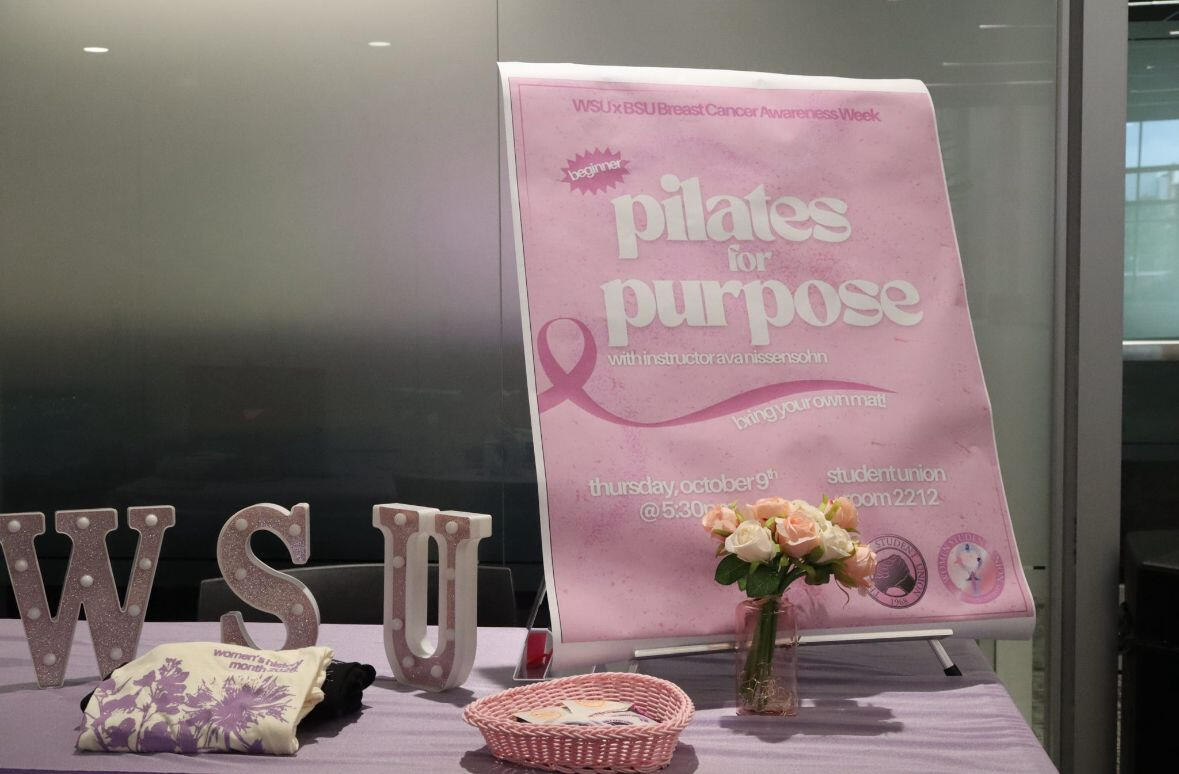
Credit: Hanna Remtulla
Reflecting on the event’s purpose, Nissensohn said, “I think it’s so important for all areas of health. Exercise can reduce the likelihood of someone getting breast cancer by 10-20%, so pilates is an awesome form of exercise that is super accessible and can be done anywhere.”Through awareness, advocacy, and community, the WSU and BSU fostered a supportive environment where students could learn, connect, and take action, raising over $1,750 worth of donations. The week served as a reminder that collective efforts have the power to create meaningful change in the fight against breast cancer.
EDUCATION ... POLITICS ... SCIENCE & TECHNOLOGY ... HEALTH ... CULTURE ... ENTERTAINMENT ... OPINION
CULTURE┃OCTOBER 24, 2025
FSU’s Asian American Student Union Holds Sixth Annual 850 Night Market
BY Amy Arredondo
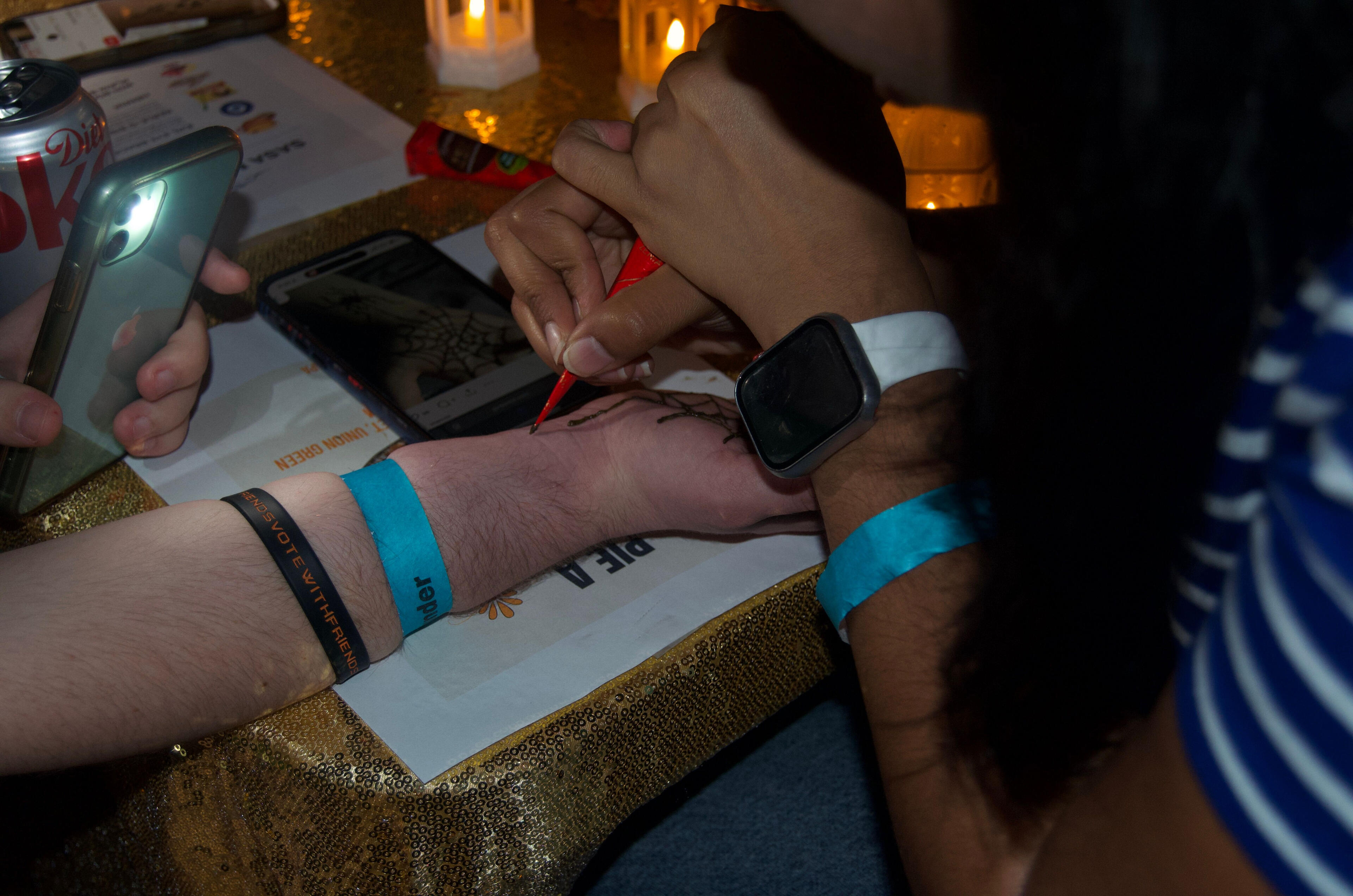
Credit: Suhani Sharma
On Oct. 17, Florida State University (FSU)’s Asian American Student Union (AASU) collaborated with Club Downunder (CDU) to hold their sixth annual 850 Night Market on the Union Green. The event included tables run by various affiliates, local Asian vendors, and performances by FSU students and community members.The 850 Night Market aims to provide fundraising opportunities for the AASU’s affiliates and increase membership within the organization.Geetanjali Srivastava, a junior serving as the current Director of the AASU, said, “This is always a fundraising opportunity for our affiliates to help get them started during the school year so they can put on their banquets and their events.”Since its founding in 1996, the AASU’s mission is to provide a community for Asian American students who attend FSU. The organization maintains strong relationships with several affiliates, such as the Filipino Student Association (FSA), the Korean American Student Association (KASA), and the South Asian Student Association (SASA).Kasey Casiple, a junior currently serving as President of the FSA, said, “ … We have connections with … UDFA, which is like the bigger Filipino community in Tallahassee. And so we’re able to tell people about it if they want to get more involved … This is a great event for affiliates to do.”
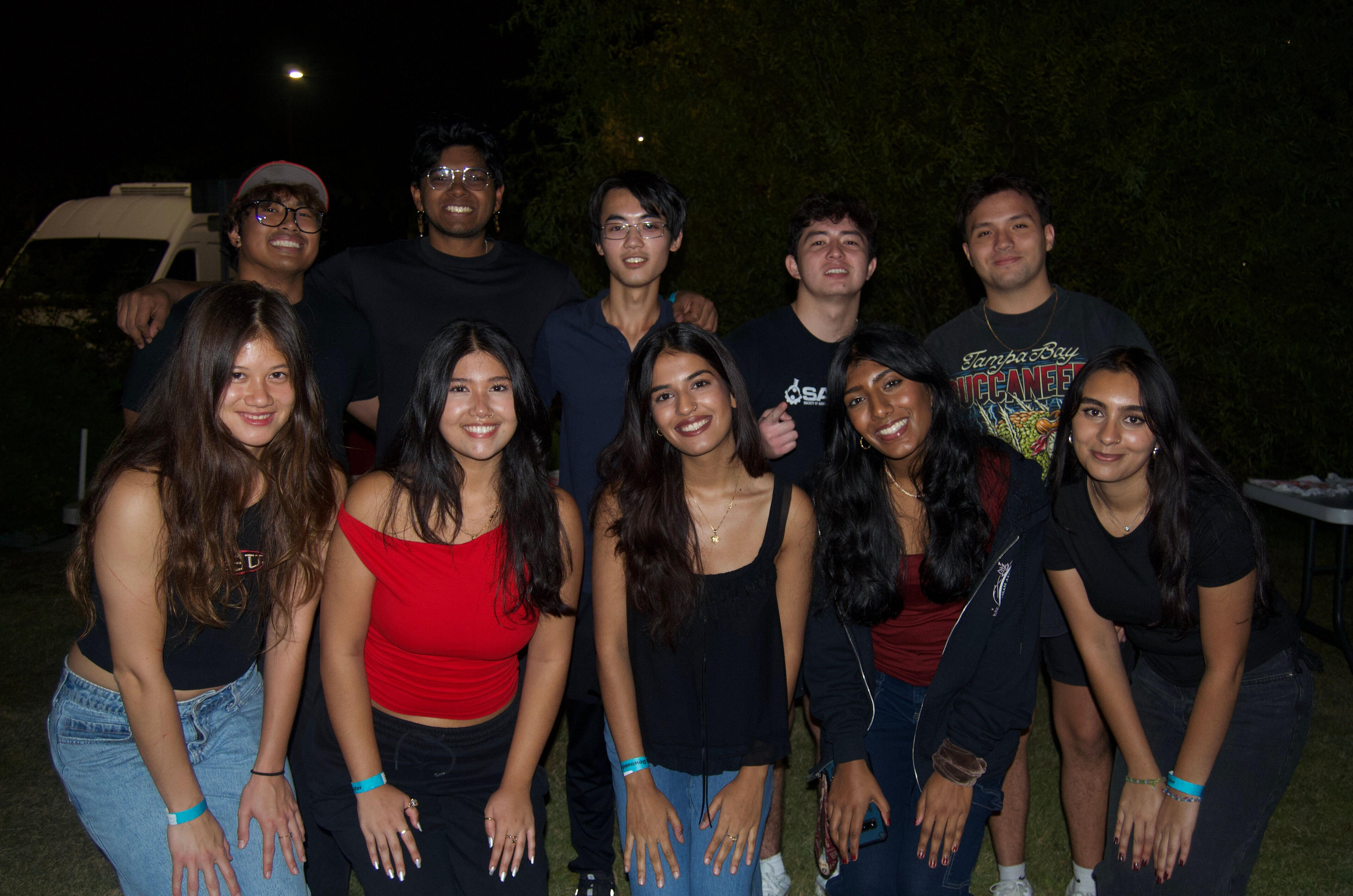
Credit: Suhani Sharma
Aside from being a space for fundraising and creativity, the 850 Night Market also works to increase the feeling of community amongst Asian American students at FSU.When asked about the impact of the event, senior Kei Chance said, “I think events like this bring us together and give us more reach … 850 [Night Market] isn't just about the Asian community, it's about spreading Asian awareness.”Recounting his sentiments of the event, senior Sawyer Poulsen said, “ So being able to have an event to bring us all together, I think fosters community and a sense of belonging.”In addition to tables highlighting affiliates and local vendors, the 850 Night Market included several performances from students and community members, providing a space for them to express themselves.Commenting on the growth of the event, performer Anitta Minette said, “My first ever drag performance was right here four years ago. And every year I've come back, I just love how it's just as big, if not bigger, every time.”With the end of this year’s 850 Night Market, the AASU aims to improve the event with each passing year. Through its fundraising opportunities and spotlight on small Asian businesses and performances, the 850 Night Market showcases the power of collaboration through community.
EDUCATION ... POLITICS ... SCIENCE & TECHNOLOGY ... HEALTH ... CULTURE ... ENTERTAINMENT ... OPINION
HEALTH┃NOVEMBER 6, 2025
Students Voice Concerns over Florida Vaccine Mandate Removal
BY Daniela Saffon
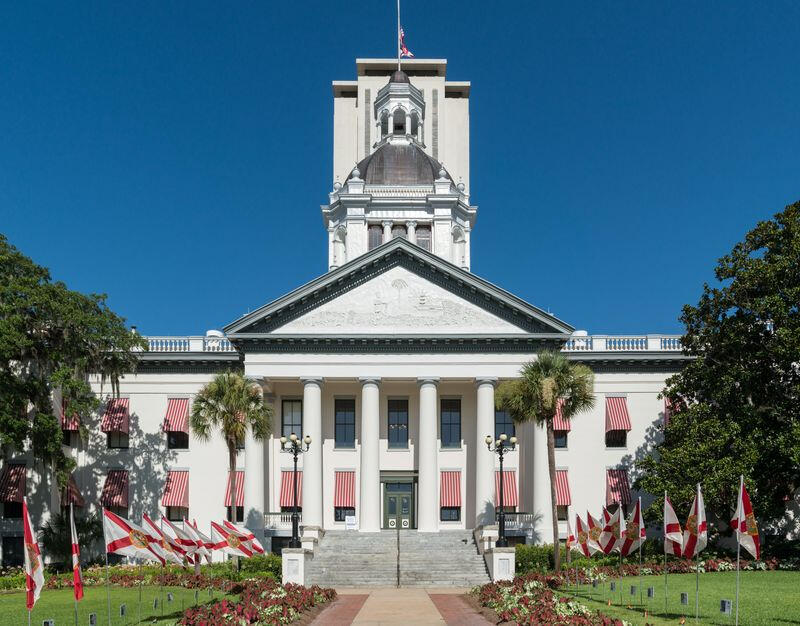
Credit: Daniel Vorndran
On Sept. 3, Florida Surgeon General Joseph Ladapo announced that the Florida Department of Health would be working directly with Florida Governor Ron DeSantis’ office to “end all vaccine mandates” in an effort to uphold medical freedom.“What you put into your body is because of your relationship with your body and your god. I don’t have that right, the government does not have that right,” Ladapo said during the announcement.This reversal marks the removal of a decades-long immunization mandate for school-aged children against deadly diseases like hepatitis B and chickenpox. The tetanus, measles, and rubella vaccines, among others, remain protected under state legislation. With this initiative, Florida becomes the first state to attempt a vaccine mandate removal. It is predicted that many states will follow in the coming months.A big worry that many elementary education students at Florida State University (FSU) are facing following this decision is how it might impact people looking to go into the education field.“It’s so scary on so many different levels. As someone who wants to be a teacher, that’s just horrifying to think about. Obviously it's never the student’s fault, but that stuff just transfers so fast,” first-year elementary education major Riley Houser said. “Vaccines are just one more thing that teachers have to worry about, it’s just so ridiculous. Of all people to target right now, it’s going to be teachers.”While the vaccine removal is only effective for K-12 students, college campuses throughout Florida will feel its effects. University of Florida (UF) Health, where Ladapo serves as a professor, issued a statement against the decision.“[Vaccines] are proven to be safe, effective, and essential in preventing the spread of many serious infectious diseases,” the statement read.FSU has not released a statement about this decision, and students are still required to to be immunized against measles, mumps, and rubella to attend. Additionally, University Health Services “strongly encourages” students to be immunized against meningococcal meningitis and hepatitis B.Schleiden Saint-Jean, president of the Multicultural Association of Pre-Health Students at FSU, voiced his concern at the Florida Department of Health’s decision.“It’s a little risky to just say that you wouldn’t want to make vaccines mandatory, especially with all the scientific evidence that proves that they can help minimize the spread of diseases,” Saint-Jean said. “I know we want to give people freedom, but some things are a little more important, like just making sure people are safe in public.”Saint-Jean also worries how loosening vaccine requirements will impact such a large campus.“We are a very big campus with a lot of kids who come from very diverse backgrounds, and not everyone has the same immunity. We’re going to be introducing diseases that someone else might’ve never seen in their hometown,” he said.Houser echoes this sentiment, saying, “It’s just going to make going to classes so much more dangerous for everyone. I don’t think what we need right now is less college enrollment rates.”Despite the Surgeon General’s announcement occurring two months ago, the future of the vaccine mandate reversal is still unclear. The plan is set to go into effect 90 days after the Sept. 3 press conference, but the state of many vaccine mandates that are legally protected remain up in the air.
EDUCATION ... POLITICS ... SCIENCE & TECHNOLOGY ... HEALTH ... CULTURE ... ENTERTAINMENT ... OPINION
SCIENCE & TECHNOLOGY┃NOVEMBER 12, 2025
FSU’s iGEM Team Wins Gold at International Grand Jamboree Competition
BY Shireen Kaveh
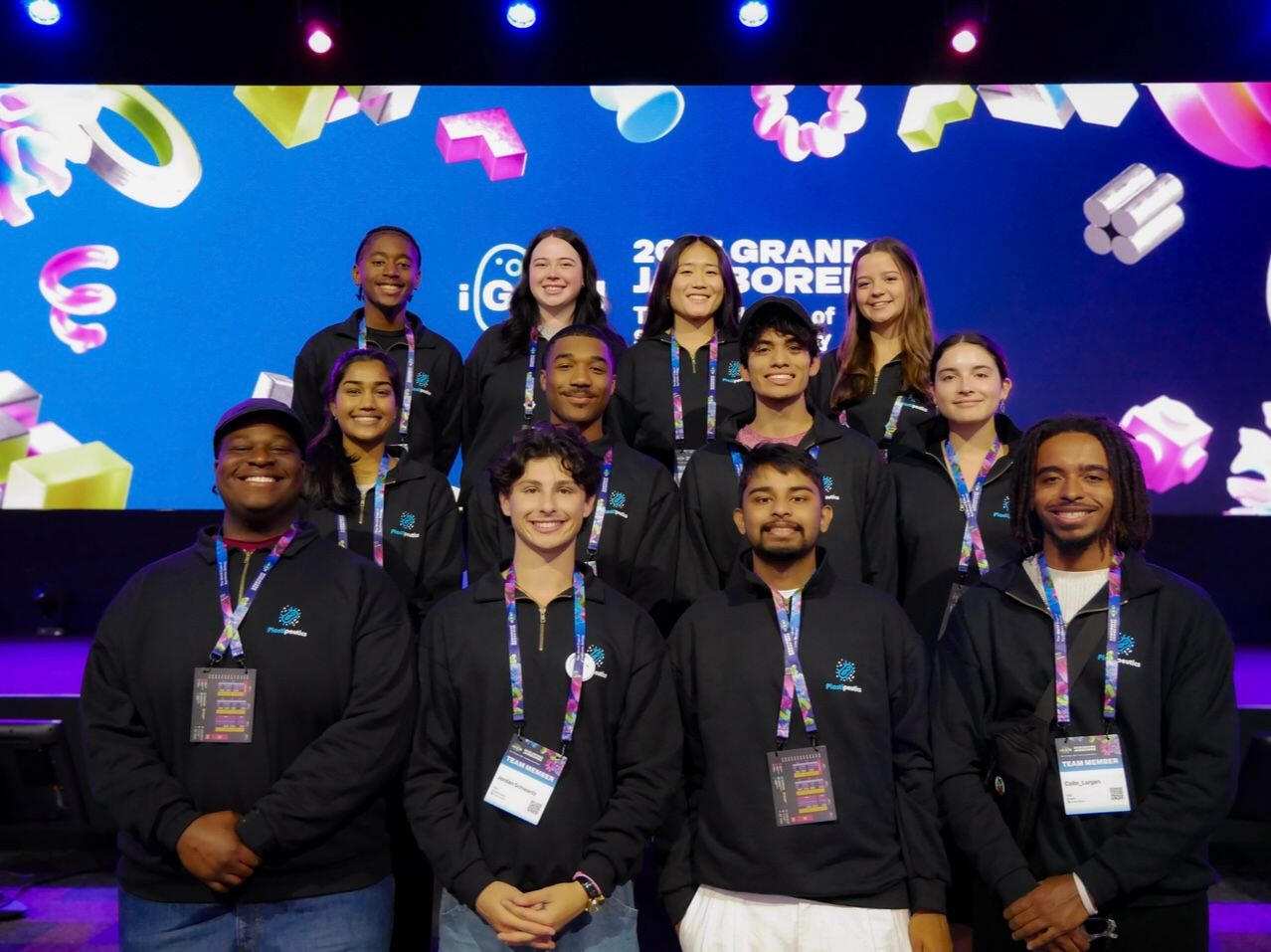
Credit: Aidan Marengo
On Oct. 30, Florida State University’s (FSU) International Genetically Engineered Machine (iGEM) group earned gold in Paris, France, at the iGEM Grand Jamboree for their synthetic biology research on Plastipeutics, an engineered probiotic built to combat the negative effects of microplastics in the human body.The jamboree consisted of over 400 groups from around the world. High school, undergraduate, and graduate level teams competed in the iGEM Grand Jamboree. The judging criteria for the iGEM competition included presentations, a questioning and answering session, and an overall review of how well each project will educate the community and assist its iterations.Victoria Montalvo, FSU iGEM associate team lead, said that she was most nervous about the judging session, which would dictate whether the team would uphold the gold medal earned by the previous year's FSU iGEM team.The team of 14 FSU students had been working on this project since last spring, undergoing several mock judging sessions with professors, peers, and mentors to prepare for the iGEM competition. They conducted their Plastipeutics project on a probiotic bacterium called E. coli that was genetically modified to bind microparticles in the gut. This bacterium aims to prevent microplastics from entering the bloodstream through the intestinal epithelial wall.Montalvo said, “We want to patent it. We want to finalize our intellectual design…talk to more lawyers, get a lab space.”She and the rest of the team are not done turning this project into something that can be life altering for millions in the future. The team is working to mitigate the negative effects of plastics on “where microplastics are in the world [and] finding out about the horrible effects like organ failure in birds and marine animals,” Montalvo said. FSU’s iGEM team is continuing their research to cease this cycle, and their next step is to continue their funding for their project after they graduate.
EDUCATION ... POLITICS ... SCIENCE & TECHNOLOGY ... HEALTH ... CULTURE ... ENTERTAINMENT ... OPINION
ENTERTAINMENT┃NOVEMBER 14, 2025
ASLC to Pre-Screen “Wicked: For Good”
BY Alyson Mizanin
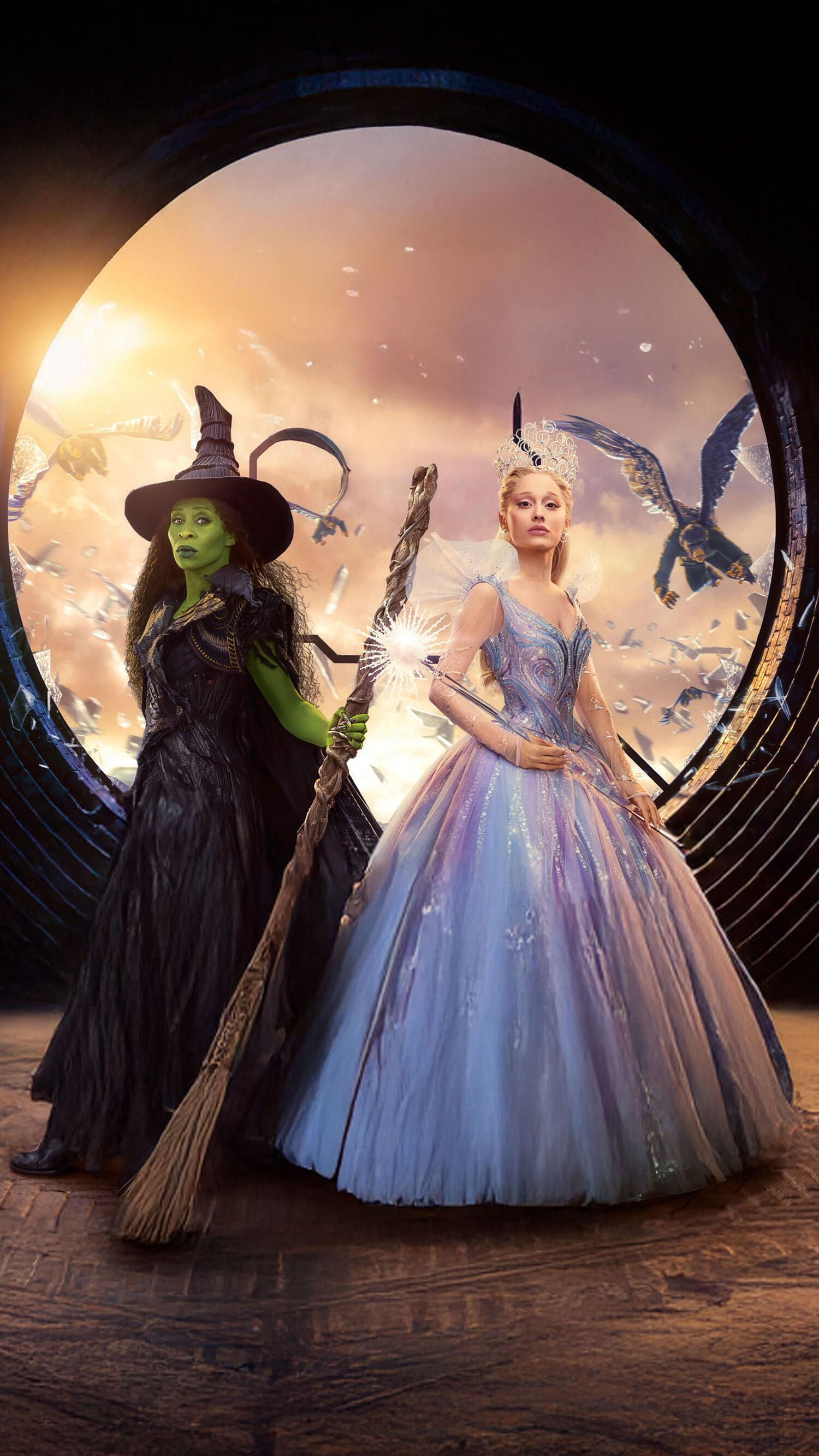
Credit: Komix Bro
Three days before the film is set to be released in American theaters, the Askew Student Life Center (ASLC) will show an advanced screening of “Wicked: For Good” free of charge for Florida State students Tuesday, Nov. 18.The pre-screening has been made possible through a working relationship the ASLC has with Universal Pictures. For all advanced screenings, the ASLC awaits contact from film production companies like Universal Pictures and Warner Brothers, who then offer early access to select films for collegiate movie theaters like the ASLC.“For advanced screenings, it’s always a very exciting project, as we are getting the film early and before it comes out in theaters,” ASLC New Release Programmer Alan Bethencourt said.The upcoming showing follows the ASLC’s advanced screening of the original “Wicked” Nov. 12, 2024, 10 days before the film was shown in theaters across the U.S.Doors for “Wicked: For Good” will open at 5:00 p.m. Tuesday evening, and the show will begin at 7:00 p.m. The ASLC plans to hold interviews, play music, and open doors earlier than they did for last year’s showing to optimize the student experience while awaiting the film. Those attending the movie will have the opportunity to play games, win prizes, and participate in costume contests inside the theater.“Whenever we program a film that connects with such a large part of our student body, it’s exciting,” Bethencourt said. “We love that this connects with students, so it’s our job to make sure they have an unforgettable experience.”
EDUCATION ... POLITICS ... SCIENCE & TECHNOLOGY ... HEALTH ... CULTURE ... ENTERTAINMENT ... OPINION
HEALTH┃NOVEMBER 15, 2025
Light the Night: Walking for a Cause
BY Maddie Medwid
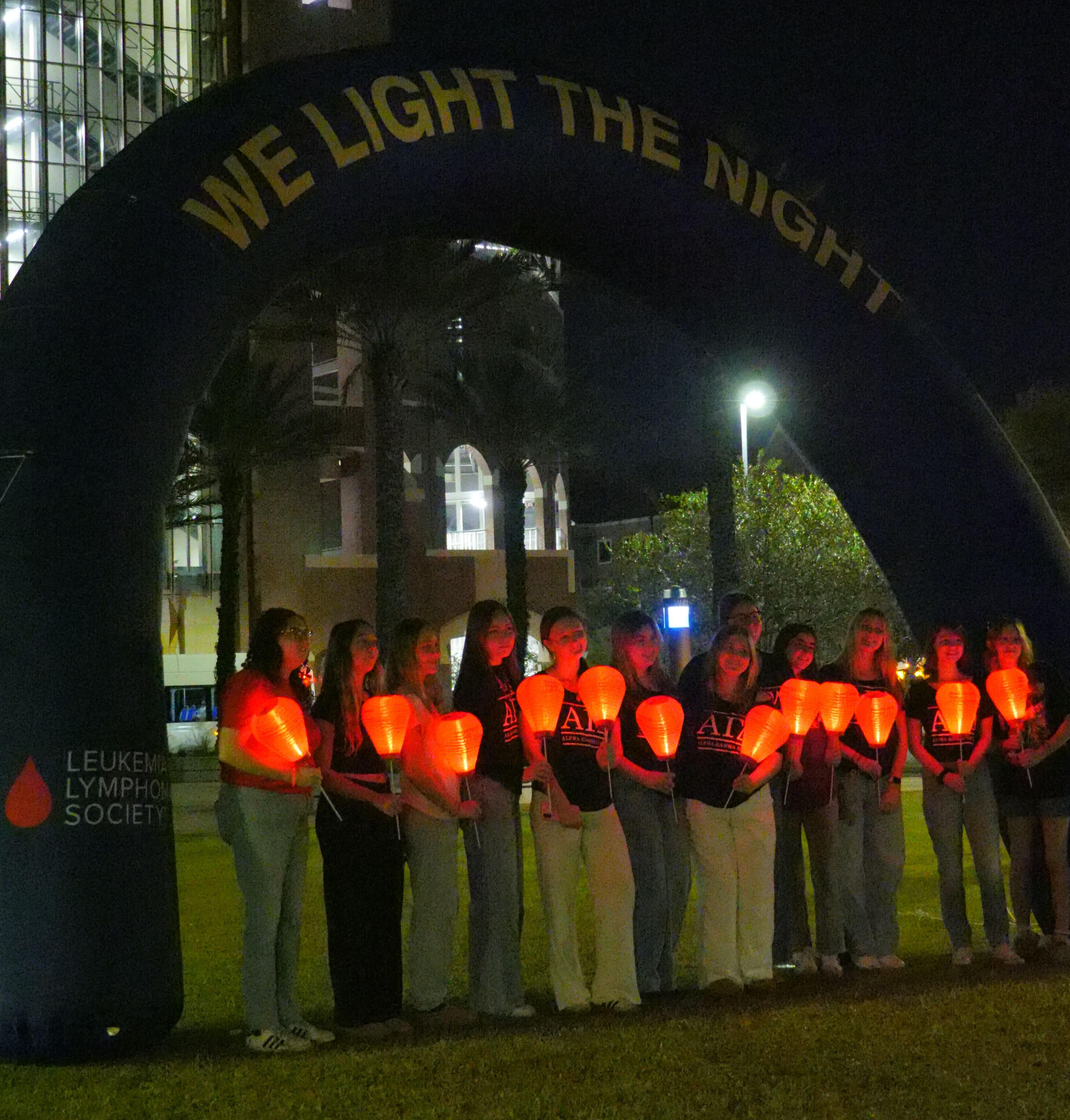
Credit: Daniela Saffon
Every fall, when Florida State University (FSU) students and faculty come together to walk a mile with glowing lanterns, they’re not just lighting up the night; they’re lighting a path toward awareness, research, and support for those impacted by blood cancer.On Wednesday, Nov. 5, Light the Night (LTN), a student-led movement dedicated to supporting those impacted by diseases such as leukemia, lymphoma, and myeloma, continued its mission. Through fundraising and community engagement, participants helped raise thousands of dollars for critical research in partnership with Blood Cancer United (BCU). BCU is a nonprofit organization that provides free and personalized support services for patients, survivors, and their families. Their services include information, financial assistance, and clinical support.“We’re currently sitting at about $90,000, and that number is projected to increase after the event,” said LTN President Carys Delahanty.Blood cancers are aggressive and often develop silently, making these illnesses much more common and dangerous than many people realize. Every three minutes, someone in the United States is diagnosed, and approximately every nine minutes, a life is lost to these diseases. Additionally, childhood leukemia remains the most common cancer among children and teens. With numbers that staggering, LTN focuses on honoring those touched by blood cancer. This event held personal weight for LTN’s Vice President of Logistics Sydney Fairs.“My grandpa passed from leukemia in 2020, so when I came to Florida State, I really wanted to get involved,” she said. “And then, when I was a sophomore, my dad was diagnosed with leukemia. I was already involved with Light the Night, but last year, he actually passed away from leukemia, and so now it just means that much more to me.”As LTN grew in size and community support over the years, the event moved from Landis Green to Langford Green. This shift allowed for more space, food trucks, and public parking to maximize the event’s participation.Hours before the walk began, the area had been transformed into a space filled with informational tables, donation opportunities, live music, and food vendors such as Sweetie Eaties, Vale Food Company, and Tally Style.“I think the event really makes a difference because it brings everyone together in the community,” said Delahanty. “Firstly, obviously the Florida State community, and we have a big, strong Greek life presence with us. And then to the Tallahassee community — which was something I really aimed to grow this year — getting as many locals to come together so we could all commemorate those who have won and lost their battle to cancer.”Students stopped by booths to connect with local organizations, including Furry Friends, a station hosted by Champs Chance that offered comfort and stress relief with therapy animals. Another participating student organization was Nole Med, which supports students pursuing careers in medicine or healthcare.“With our organization, since it’s mostly pre-health students, the goal is to raise education among the healthcare field, and in turn help healthcare professionals with research and talking to patients directly about seeking treatment plans,” said Service and Outreach Chair Maddie Markham.Other tables invited attendees to write handwritten cards for cancer patients. Nearby, a “dream wall” grew as participants added sticky notes expressing wishes, affirmations, and names of loved ones affected by blood cancer. These acts of compassion served as a reminder that emotional support is just as vital as fundraising.Toward the end of the night, two survivors, Evette O’Connor and Cole Pridgen, came forward to share their stories about their experiences battling blood cancer.
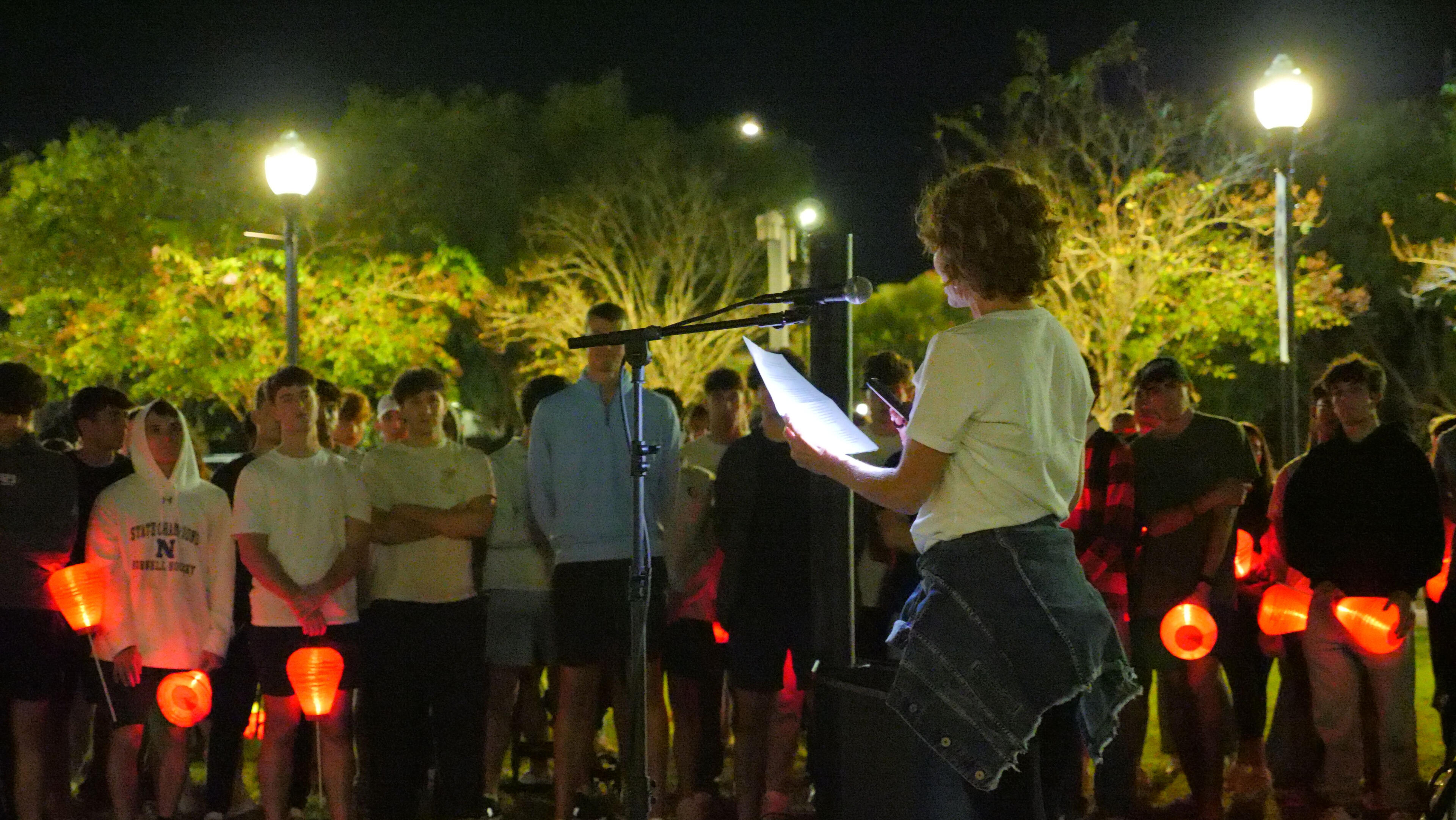
Credit: Daniela Saffon
O’Connor is a survivor of stage 2 diffuse large B-cell non-Hodgkin’s lymphoma and will celebrate the two-year anniversary of finishing chemotherapy in Jan. 2026. She shared her experience with the disease, beginning with the random discovery of a lump on her neck and noticing that her tonsil had swollen to the size of a golf ball. After seeking medical attention, she learned she had cancer. As a practicing dietitian, O’Connor said she initially felt disbelief at the diagnosis; maintaining a healthy lifestyle made it difficult for her to reconcile the reality that cancer can affect anyone. Eventually, undergoing surgery to remove both the affected lymph node and tonsil, she stated that she experienced 10 days of excruciating pain that felt like an isolating battle.With a strong support system that guided her, O’Connor continued by explaining that the most important thing she learned was remembering she was not in this fight alone.“My treatment was difficult, but the love surrounding me was relentless,” she said. “I saw the yellow lanterns light up around me every day.”Pridgen, a senior at Florida State University, shared his experience battling Burkitt lymphoma, a rare and aggressive form of non-Hodgkin lymphoma that affects fewer than 1,500 people in the United States each year. His symptoms began in mid-March with persistent lower-back pain, initially dismissed as a routine muscle strain. As the pain escalated, he returned to Tallahassee Memorial Hospital, where imaging revealed a mass measuring approximately 10 by 10 by 7 centimeters positioned between his liver and pancreas.Doctors told Pridgen that without immediate treatment, he was only days away from liver failure. He was transferred to the Medical College of Virginia at VCU Health, where he began an intensive chemotherapy regimen.Pridgen described chemotherapy as a physically and emotionally demanding experience that he will never forget, marked by rapid weight and hair loss. He credits his perseverance to the support of his family and girlfriend.As of Sept. 25, he remains off treatment and is currently involved in medical research focused on malignant lymphoma classification. Reflecting on his recovery, Pridgen says the experience changed his outlook on life.“I’ve learned to be able to appreciate the small things in life,” He said. “When your life is really put into jeopardy and you realize everything is at stake, it truly puts everything in perspective … Going through such an instance like this really changes the way you view life altogether. All you can do is appreciate life as it comes.”The annual Light the Night Walk took place shortly after, where students, alumni, local sponsors, and families united to celebrate survivors, remember loved ones lost, and raise awareness about the prevalence of blood cancers. Glowing lanterns were red for those walking in memory, white for survivors, and gold for supporters, creating a visual display of hope and solidarity.As the crowd moved together, the illuminated path served as a reminder that no one has to face blood cancer alone.
EDUCATION ... POLITICS ... SCIENCE & TECHNOLOGY ... HEALTH ... CULTURE ... ENTERTAINMENT ... OPINION
EDUCATION┃NOVEMBER 16, 2025
FSU’s College of Music Hosts Dr. Andrea Ramsey For Week-Long Residency
BY Amy Arredondo
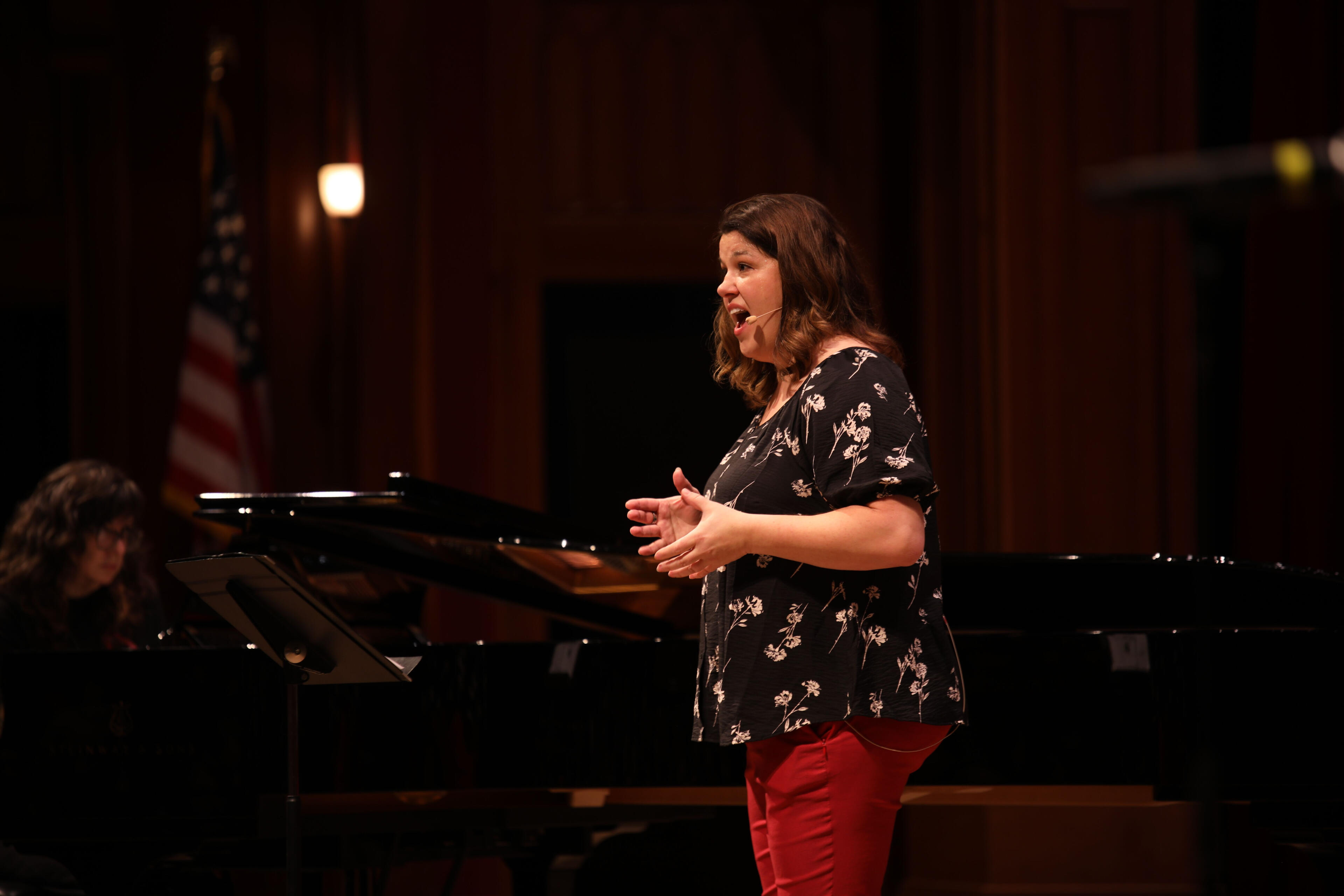
Credit: Connor Myers
On Nov. 3, Dr. Andrea Ramsey, a music educator and renowned composer of choral music, began her residency at the Florida State University (FSU)’s College of Music. Throughout the week, she acted as a clinician in several of the university’s choral ensembles, such as Levana, University Singers, and Choral Union.Ramsey is famous internationally for her work as a composer, but she also spends time working with young musicians as a guest clinician all over the United States for organizations such as the American Choral Director’s Association (ACDA).When asked about the process of bringing Ramsey to FSU, Dr. McKenna Stenson, choral director of Levana and the coordinator of Ramsey’s residency, explained that the College of Music features a Housewright Grants program that she used to obtain funding to bring Ramsey to campus.All of FSU’s choral ensembles included Ramsey’s work in their programs for the fall semester, but one particular group had the most. Stenson’s Levana, a women’s choir open to any female or gender nonconforming students on campus, featured four of Ramsey’s compositions. Levana debuted one of Ramsey’s compositions, “Worry Bird,” at their fall concert Nov. 4.
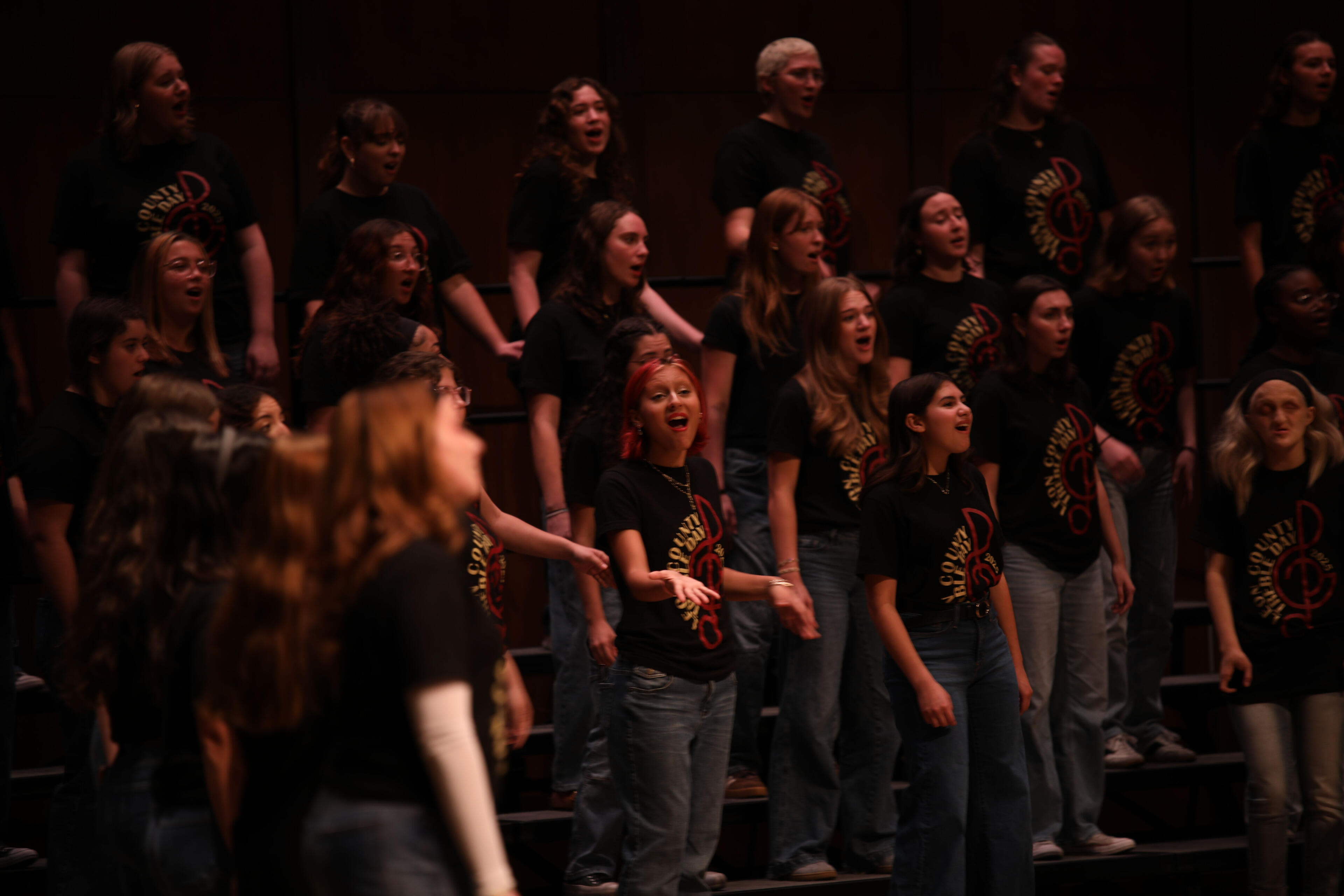
Credit: Connor Myers
Reminiscing on the creative process behind the song, Ramsey said, “This song was actually written by my sister-in-law and her friends. When I heard it I thought, ‘This would be perfect for a treble choir’ … We worked out a contract … And then I didn’t have to do a lot.”Starting in August, students in Levana worked to memorize all of Ramsey’s songs for the fall Concert.Sophomore Isabelle Jocelyn said, “I’m really excited. I have premiered pieces with choirs before, but I feel that this is a little bit different just because it’s my first premiere of a piece at the collegiate level,” when expressing her excitement over the premiere.A large portion of Ramsey’s residency was spent working with Levana. This included a choral festival called Treble Day, which allows students from middle and high school to visit FSU, work alongside Levana, and perform at a concert in Ruby Diamond Concert Hall. This year’s Treble Day featured 500 students from local middle and high schools. The concert program ended with every student singing Ramsey’s “Worry Bird” together.When asked how she hoped this experience would impact students, Stenson said, “I just want them to soak in every moment because it’s so special when you get to have a guest on campus.”“If I have my mentor’s voice in my head … A clinician or a guest artist has one job and that’s to make sure people leave loving choir more than when they got there,” Ramsey said in reply to the same question.Ramsey’s residency wraps up the regular concert season for choral ensembles as they now move towards working on their final concert of the semester, Seasonal Celebration.
EDUCATION ... POLITICS ... SCIENCE & TECHNOLOGY ... HEALTH ... CULTURE ... ENTERTAINMENT ... OPINION
POLITICS┃NOVEMBER 18, 2025
The U.S. Government Restores SNAP Benefits After Longest Shutdown in History
BY Zionne Cummings
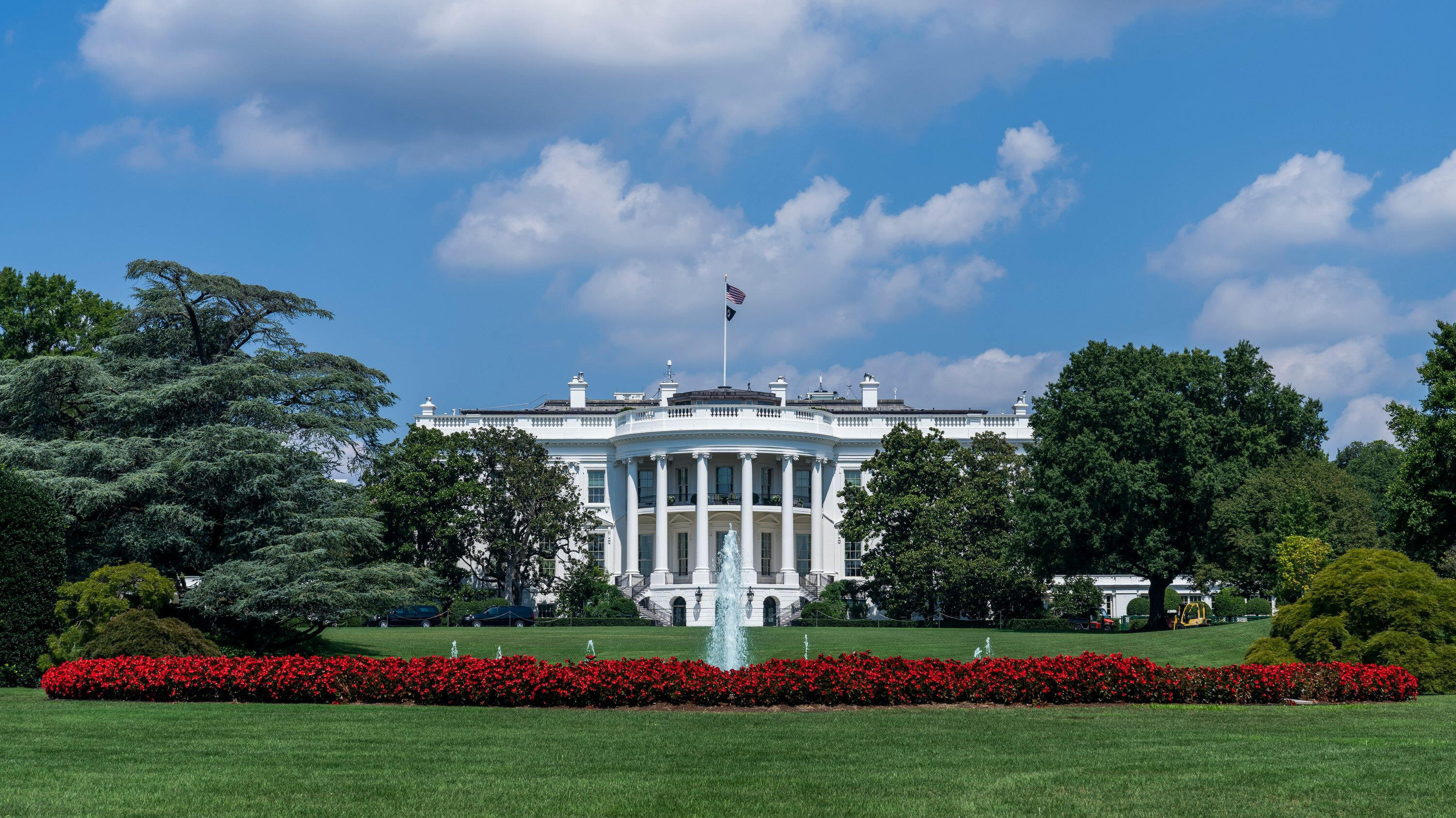
The south side of the White House is photographed from the South Lawn, Monday August 29, 2022. (Official White House Photo by Cameron Smith) licensed under CC BY 3.0
On Nov. 12, President Donald Trump signed a bill funding the government and formally ending the longest shutdown in U.S. history. Previously, the record for the longest government shutdown was held by the 35-day shutdown that took place during Trump’s first administration.The shutdown impacted millions of Americans, including 42 million people dependent on federal food aid, 670,000 furloughed federal employees, and 4,000 government workers who faced layoffs.After a change in stance by six Democrats and two Republicans, the House of Representatives approved the new funding bill with a vote of 222 to 209 Nov. 12. Within hours of its approval, Trump signed the bill into law, proclaiming, “It’s a great day.”
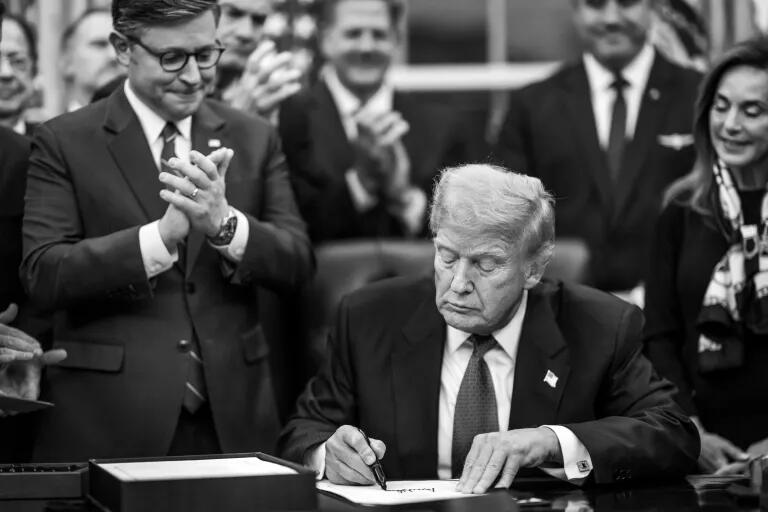
President Donald Trump signs the funding bill that reopens the government alongside Speaker of the House Mike Johnson, Wednesday, November 12, 2025, in the Oval Office. Official White House Photo by Daniel Torok, licensed under CC BY 3.0
Most Democrats opposed the legislation due to its failure to address expiring health insurance subsidies, a core concern for the party. As part of negotiations with Republican lawmakers, Senate Democrats have agreed to vote on the issue in mid-December.While the new deal will fund the government until Jan. 30, programs including the Supplemental Nutrition Assistance Program (SNAP) and Special Supplemental Nutrition Program for Women, Infants and Children (WIC), the School Lunch Program, the School Breakfast Program, and Summer Electronic Benefits Transfer (EBT) will be funded through September 2026.Following federal guidance from the U.S. Department of Agriculture, the Florida Department of Children and Families (DCF) will issue full distributions of SNAP benefits for the month of November.As Americans awaited an agreement from Congress, almost 3 million Floridians were left to find alternative methods to purchase food.In response to the increased need, Second Harvest of the Big Bend held two emergency food distributions Nov. 1 and Nov. 6 outside the Governor’s Square mall. Combining both days, the nonprofit served around 2,500 families in the Tallahassee area. They also provided assistance to their 120 partner agencies to aid their communities.
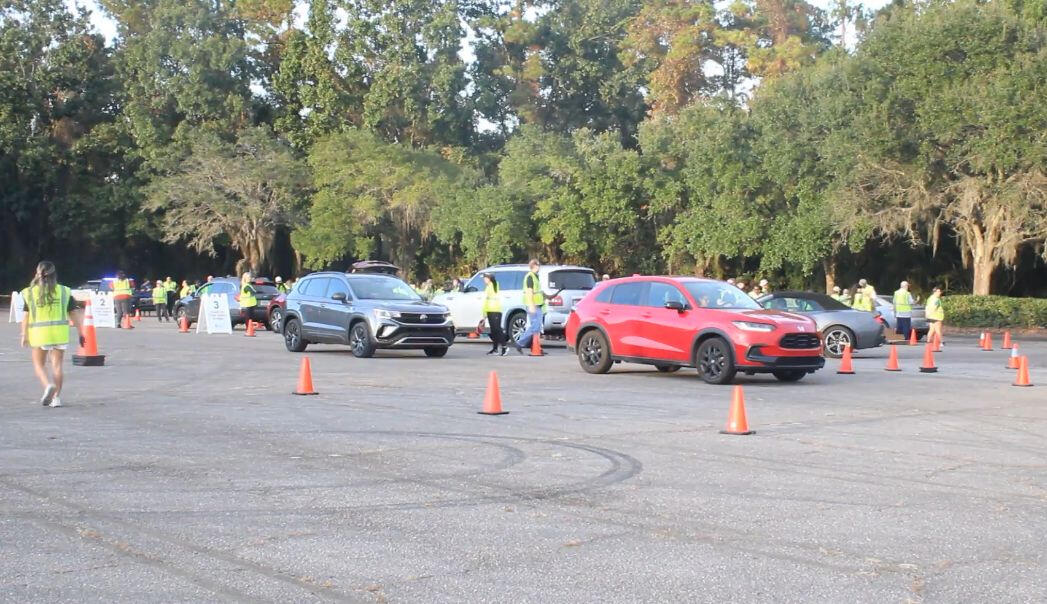
Volunteers with Second Harvest of the Big Bend distribute food at an emergency distribution drive at the Governor’s Square Mall, Thursday, November 6, 2025. Photo by Zionne Cummings.
Second Harvest volunteer Ashley Kittrell reported an increase in phone calls from first-time users who needed help navigating their website.Following the cuts, FSU’s Basic Needs Hub experienced an increase in the use of Emergency Relief Funds and cases related to food insecurity. Hal Gentile, Assistant Dean of FSU’s Basic Needs program, encouraged students struggling with food insecurity to reach out for assistance. In addition to items from the Food for Thought pantry, eligible students could receive aid from the Emergency Relief Fund, gift cards, or meal swipe cards.“We know that students that are hungry have a harder time focusing. They have a harder time maintaining motivation. We know their sleep is affected. We know their psychosocial health is impacted. All of those things take their attention away from being successful in class, connecting in their extracurriculars, networking, and being professionally successful,” said Gentile.The Food for Thought pantry operates Monday through Friday, 8 a.m. to 5 p.m., except on Wednesdays when hours are 1 p.m. to 5 p.m, in University Stadium Center A Suite 4109. Other resources on FSU’s campus include the College of Social Work’s snack pantry Betty’s Bodega, the College of Engineering’s food pantry, and the College of Music’s Office of Student Success, which has its own emergency relief fund and snacks for music students.
EDUCATION ... POLITICS ... SCIENCE & TECHNOLOGY ... HEALTH ... CULTURE ... ENTERTAINMENT ... OPINION
OPINION┃NOVEMBER 21, 2025
What Happened to Just Watching the Movie?
BY Lindley Minton
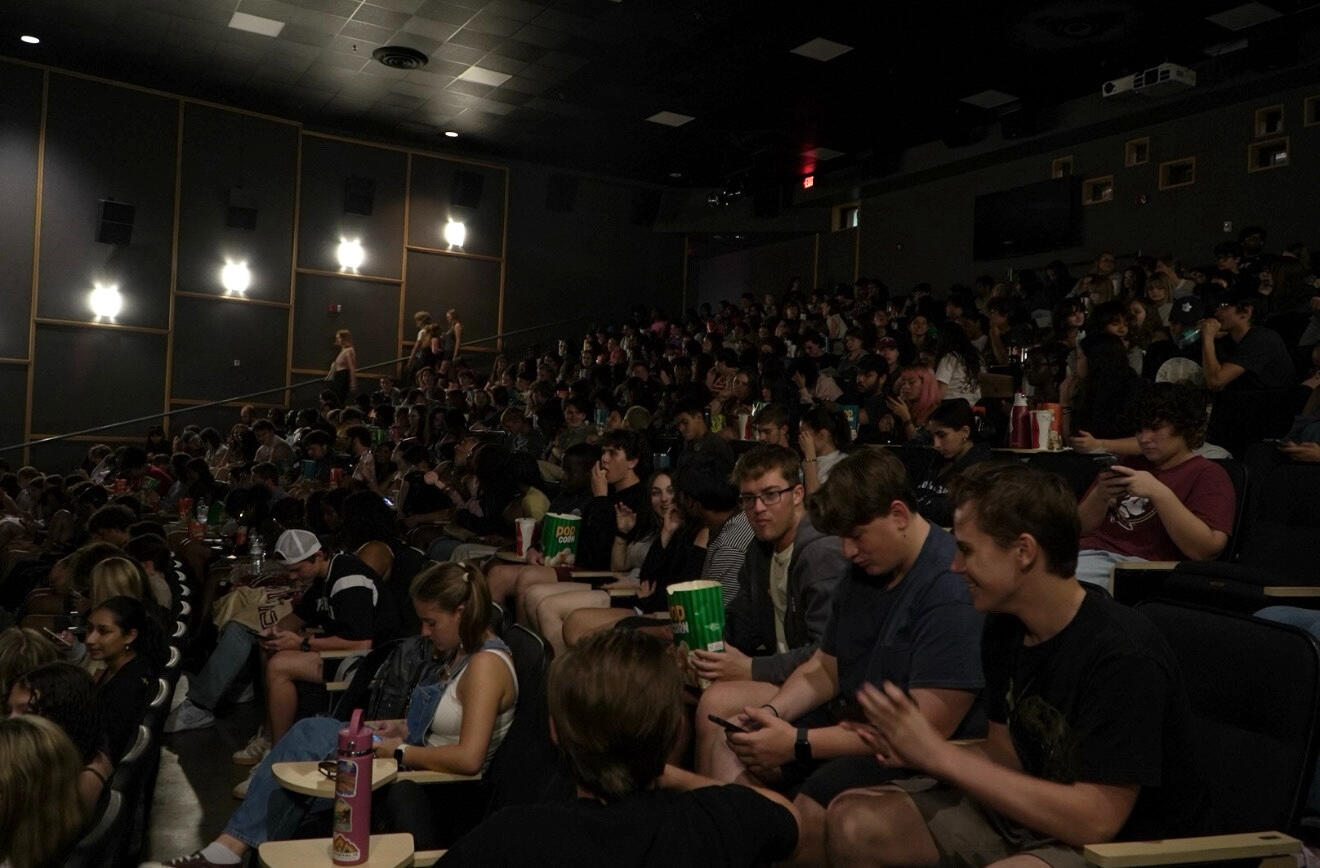
Credit: Anthony Molina
As the technological world around us continues to grow, phones are being brought into more spaces where they don’t belong. One of the most sacred of these spaces is movie theaters. Unfortunately, this issue is highly prevalent at FSU’s very own Askew Student Life Center (ASLC).As a frequent attendee of the ASLC screenings and a member of AdComm, the team responsible for the ASLC’s promotional materials, I know firsthand how much passion the staff has for what they do. The Student Life Cinema fosters a wonderful sense of community among students at FSU, but this doesn’t make their audience's lack of movie theater etiquette any less apparent.During a recent showing of “It” (2017), a young man interrupted my viewing experience of the scene where Beverly cuts her hair short. In response to witnessing a victim of sexual abuse at the hands of her father change her appearance, he decided to make the comment, “Now she’s chopped.” Apparently, it is appropriate to turn a scene where a child attempts to cope with intrafamilial sexual abuse into a punchline to get a laugh from the friend sitting next to you. Is this really the audience that the ASLC, a “safe space,” wants to cultivate?Perhaps a favorite story of mine, I once sat behind a girl who watched “Family Guy” on her phone on full brightness during a movie. I can guarantee that 90% of the movies the ASLC plays are on some streaming platform out there. If your attention span has gotten so horrible as to where you can’t pay attention to a movie without your phone in front of you at the same time, please do all of us a favor and stay home.Part of what makes the ASLC so special is its unique atmosphere. It’s not necessarily about being silent 24/7; it's about knowing time and place, and when to simply be quiet and respect the film. The problem is that the line between participation and disruption has become blurred. This sense of “community” has become an excuse to be unruly. Because the ASLC allows some of this behavior, it has now become an environment where anything goes. What once used to be a way for me to destress after a long day of studying has now become a game of how long I can stand watching the girl in front of me record the movie on her phone. There must be a certain joy that comes from watching a film playing on the big screen right in front of you through your phone camera that I have yet to grasp.Poor movie theater etiquette reflects a bigger problem in our society. We are suddenly uncomfortable with the concept of sitting in a dark room and giving the big screen our undivided attention. We cope with this inability by turning to our smaller screens. We have adapted a blatant disregard for the people around us. We have gotten so used to creating our own entertainment experience that we have forgotten how to coexist in a shared one. The ASLC cannot be the safe space it claims to be if we cannot relearn how to simply be present with each other.The ASLC is not solely at fault for this. They play a video before every screening, and programmers often remind the audience to be considerate. But these reminders seem to fall on deaf ears. The people who need to hear them are too busy looking at their phones. It seems that distraction in a movie theater is no longer common; it has become expected and simply part of the experience.The solution is not to ban anyone or turn the theater completely mute. It’s time to recognize that we have been treating spaces like the ASLC as a given in our lives, when in fact, they are a privilege. Proper movie theater etiquette and the art of film are worth protecting. If we lose the ability to do something as straightforward as that, then this isn’t really just because we are addicted to our phones. Maybe it says more about us as a society, and perhaps we no longer deserve to watch films on the big screen.




















